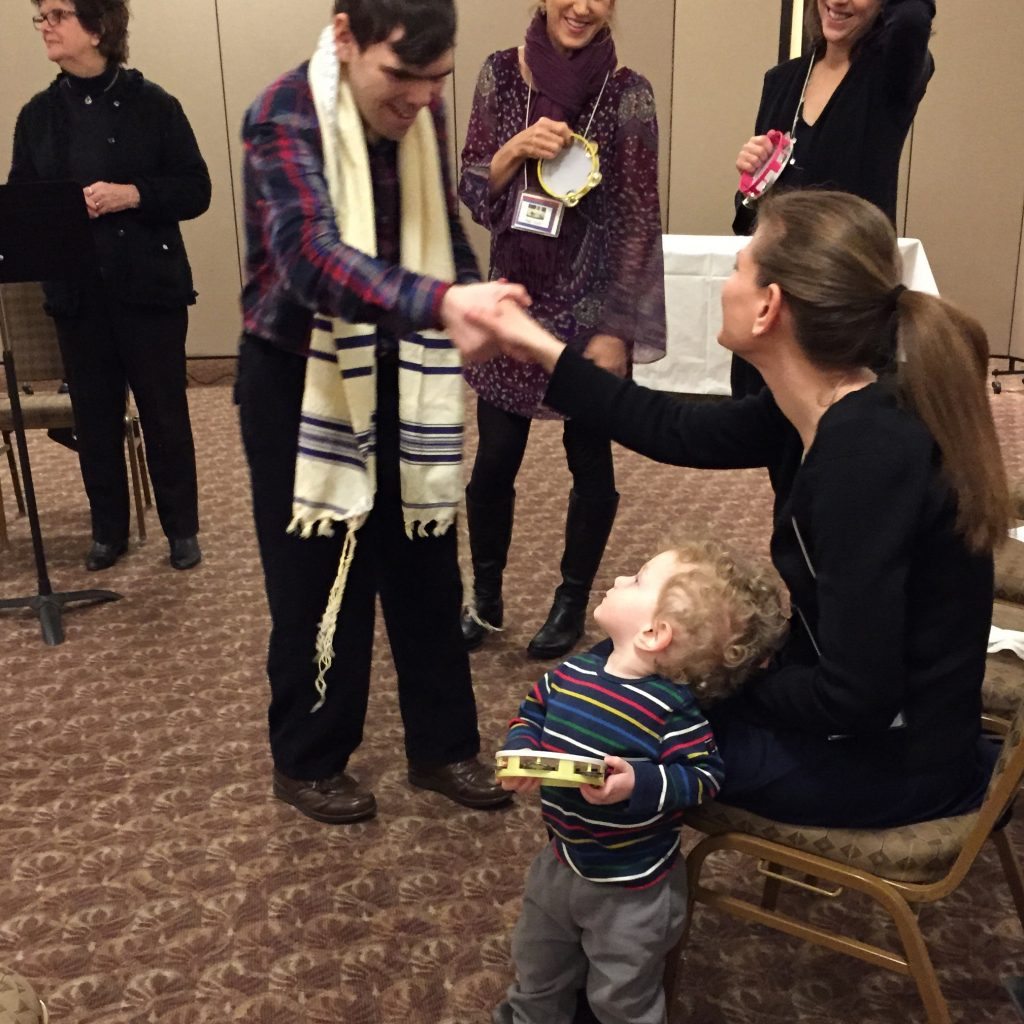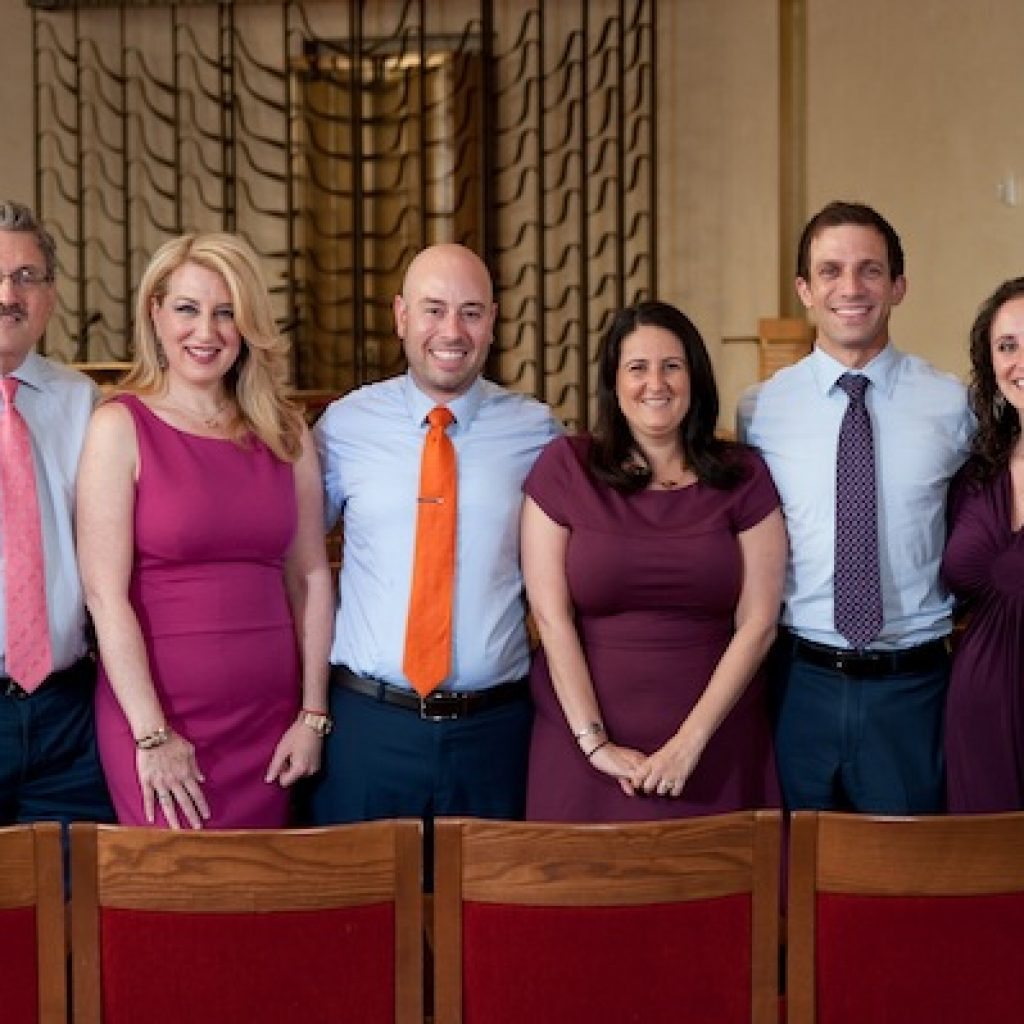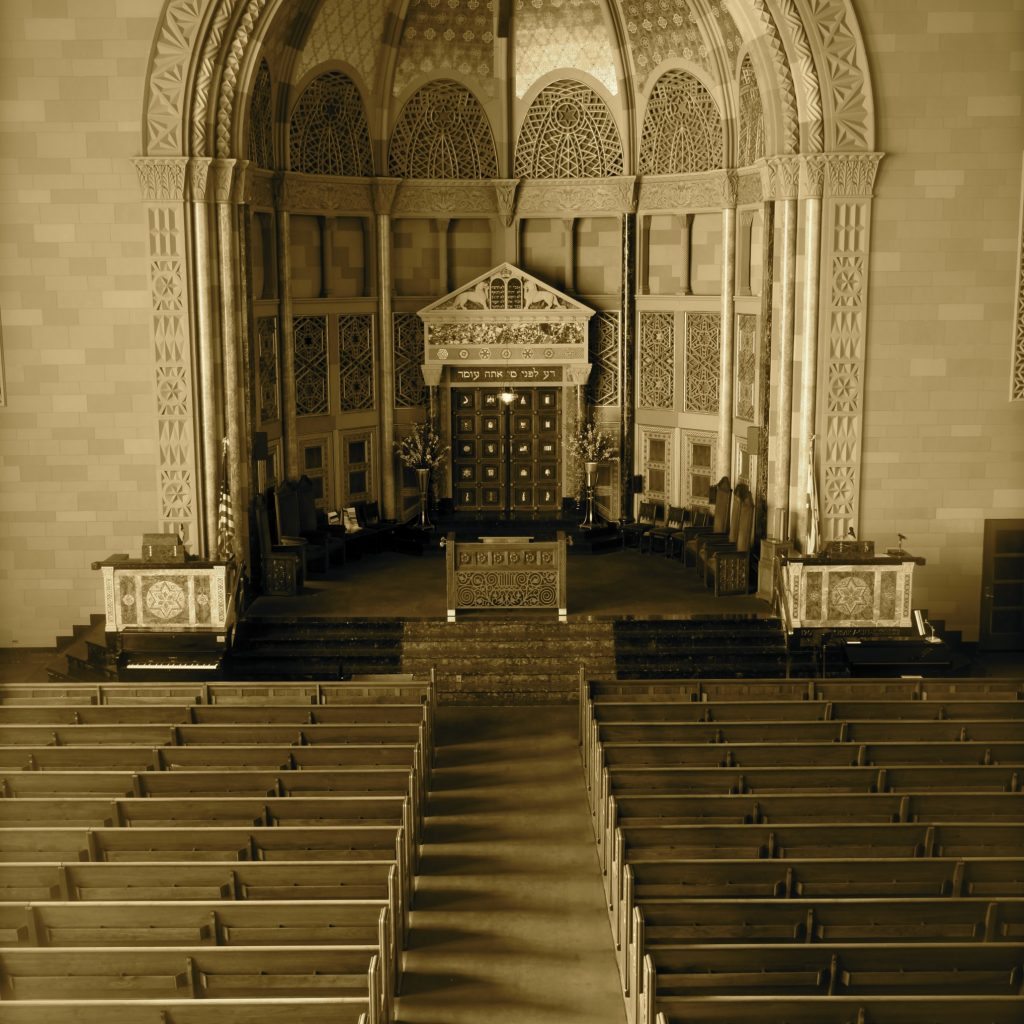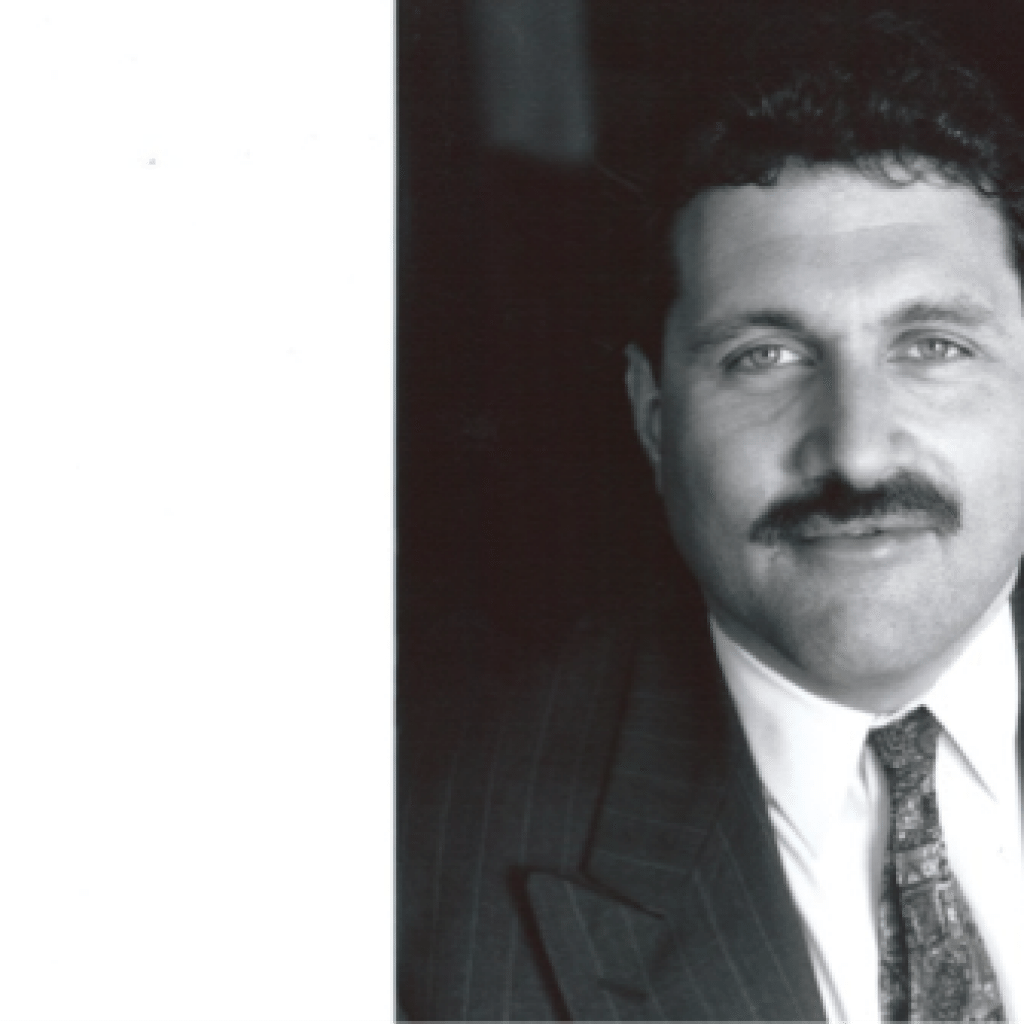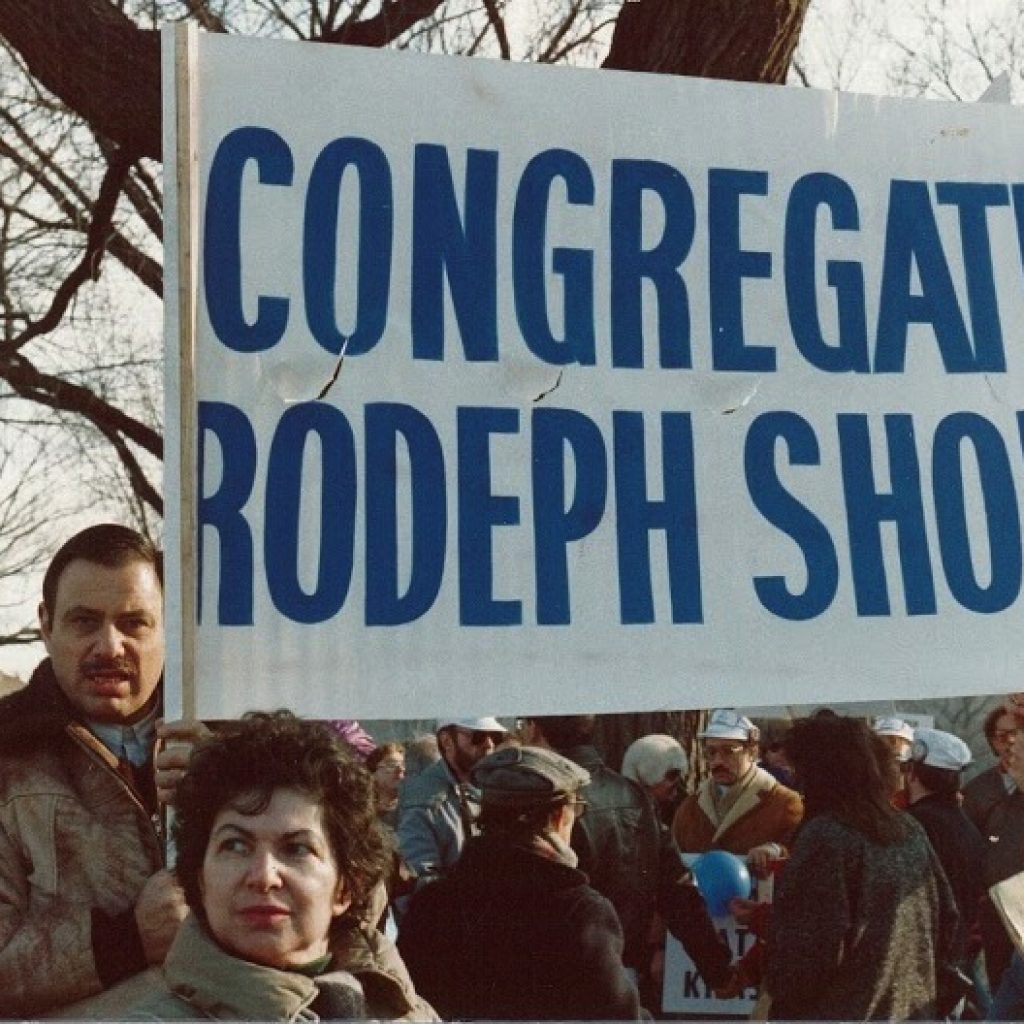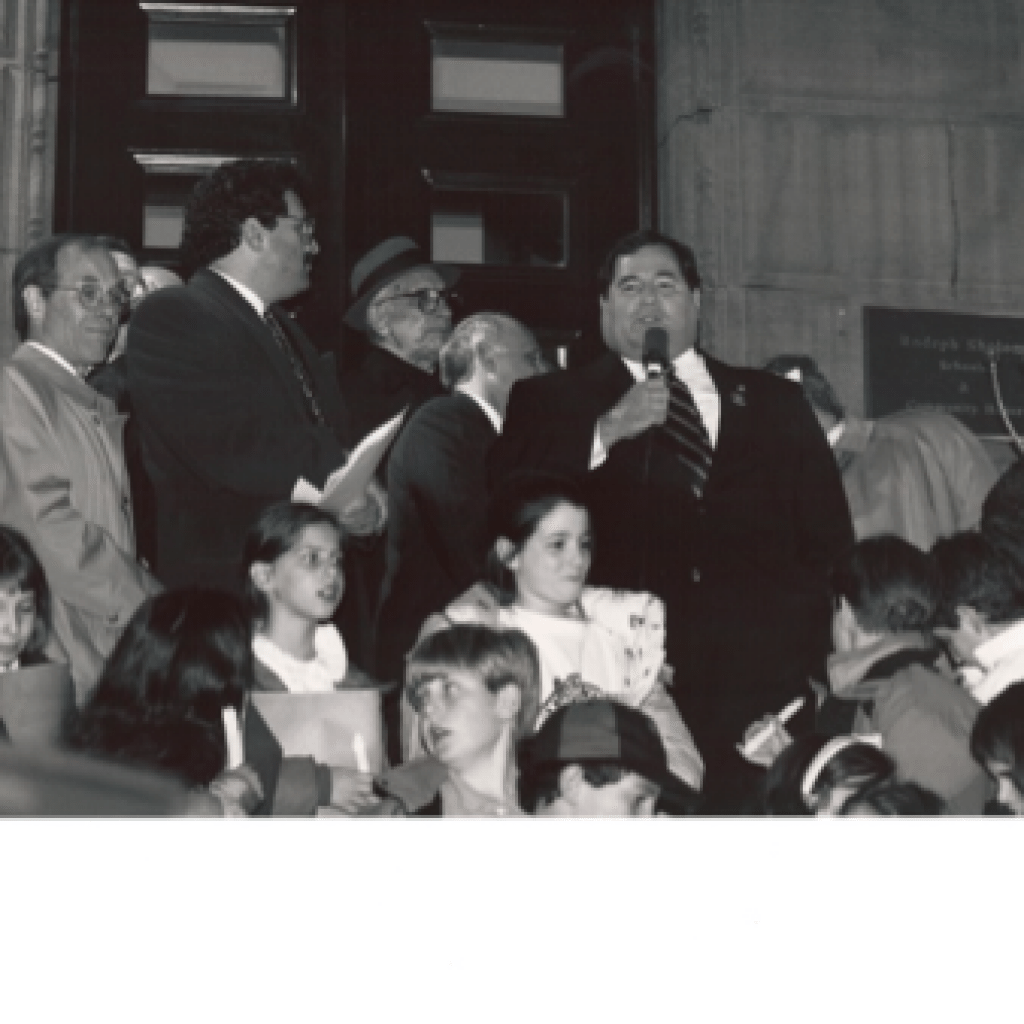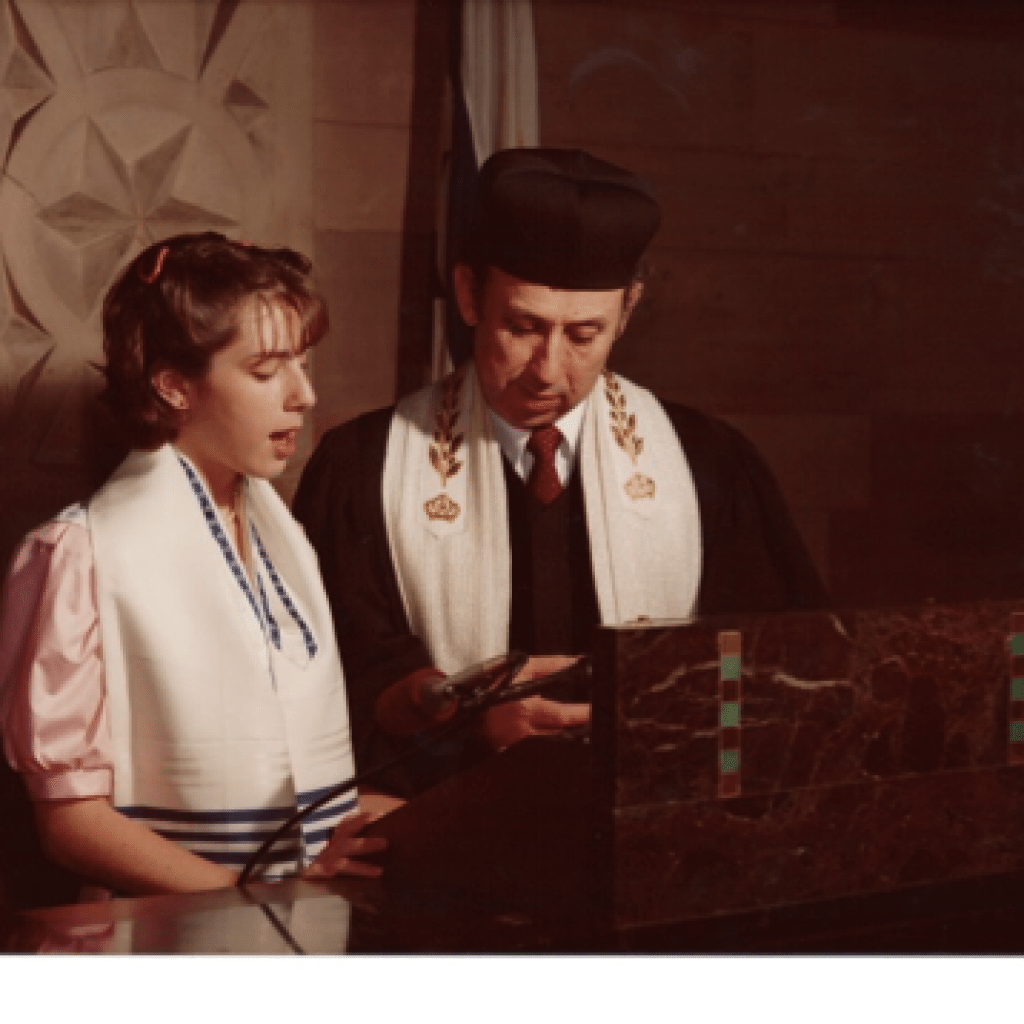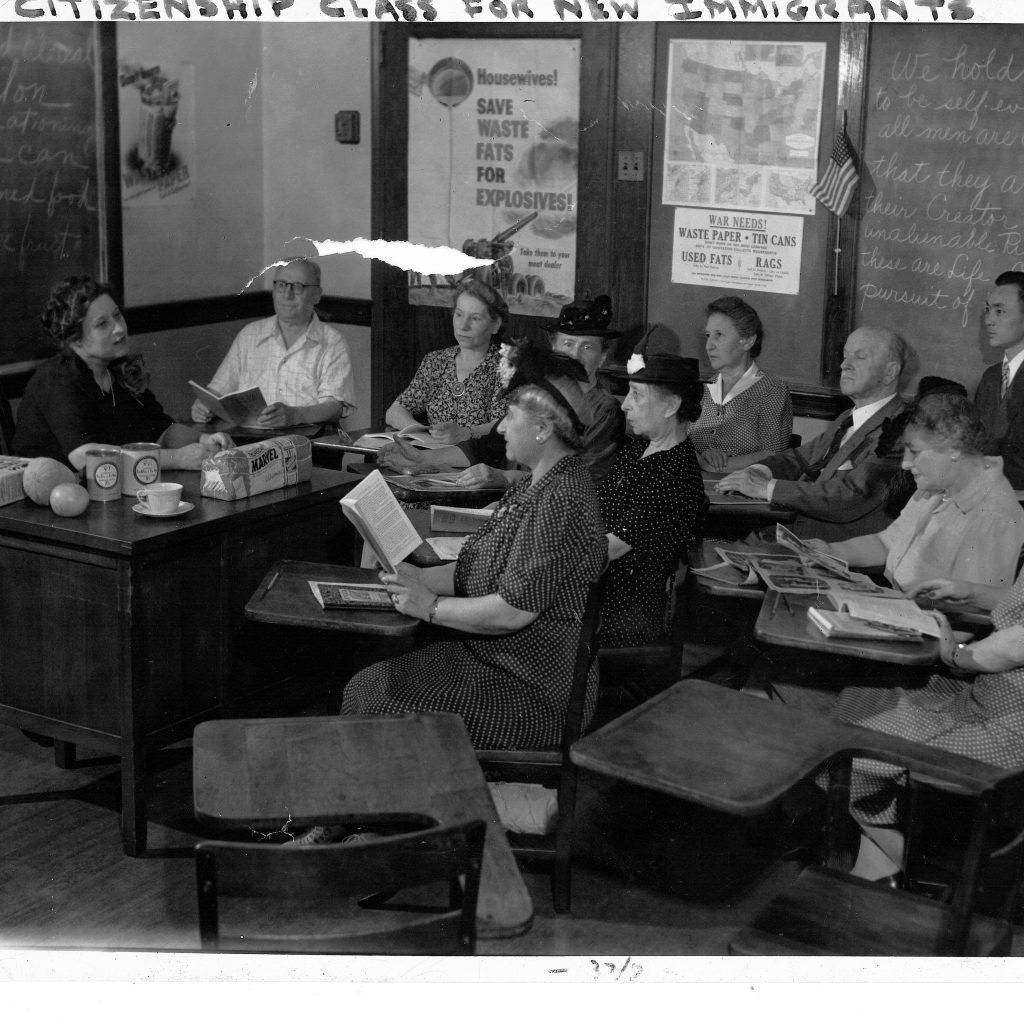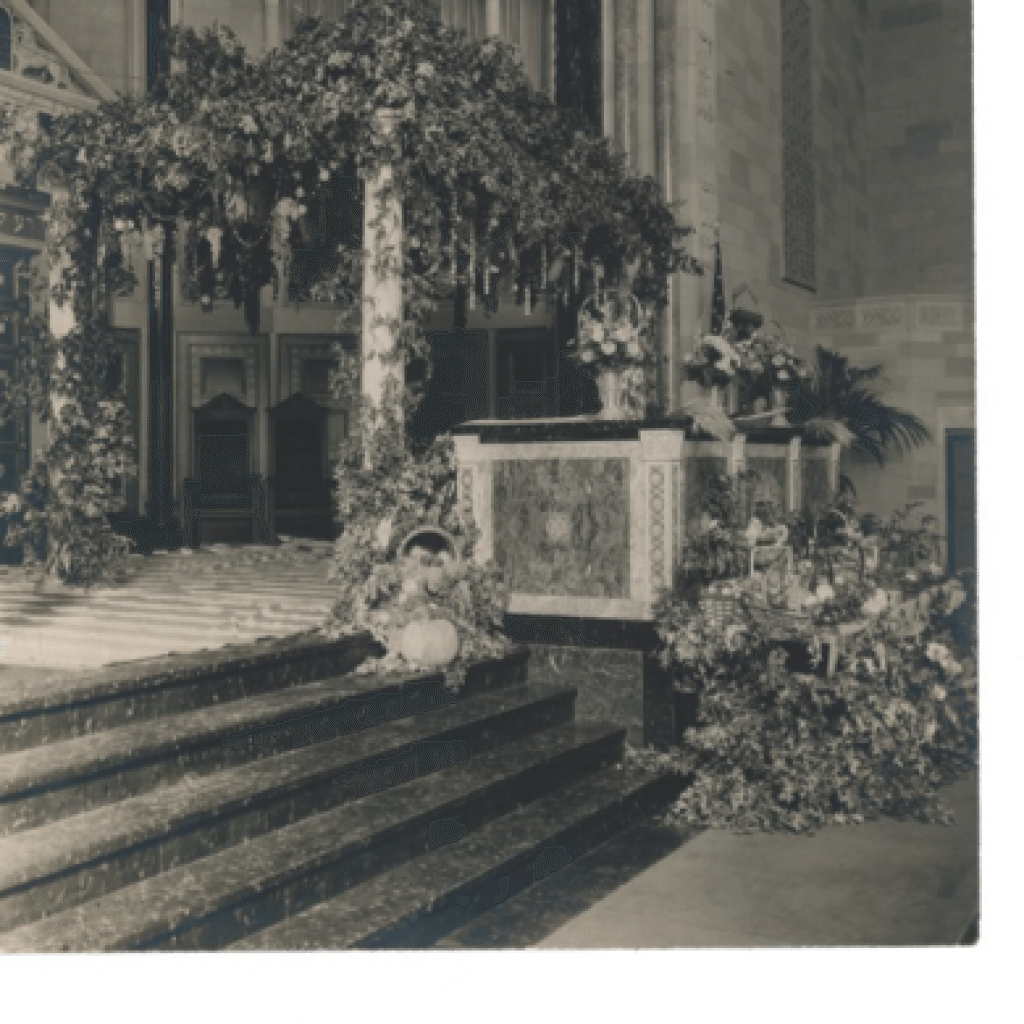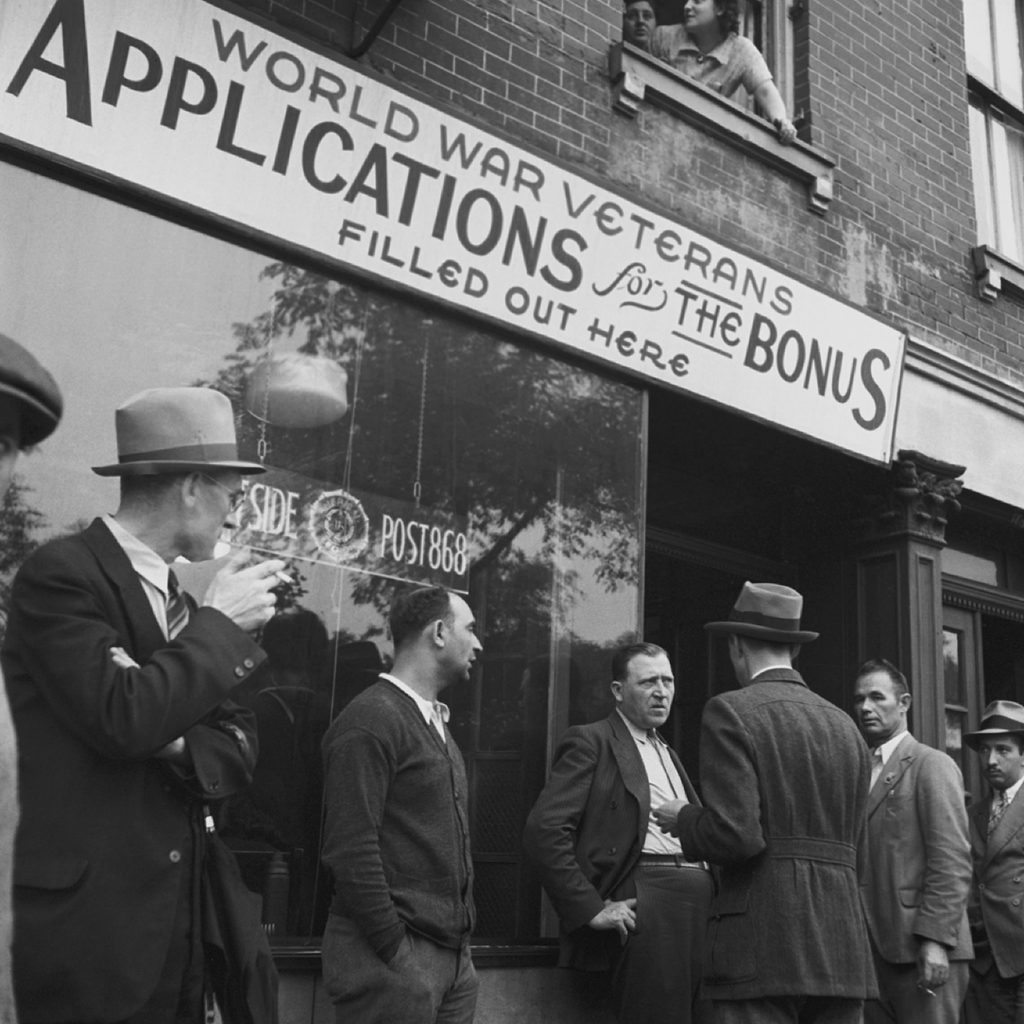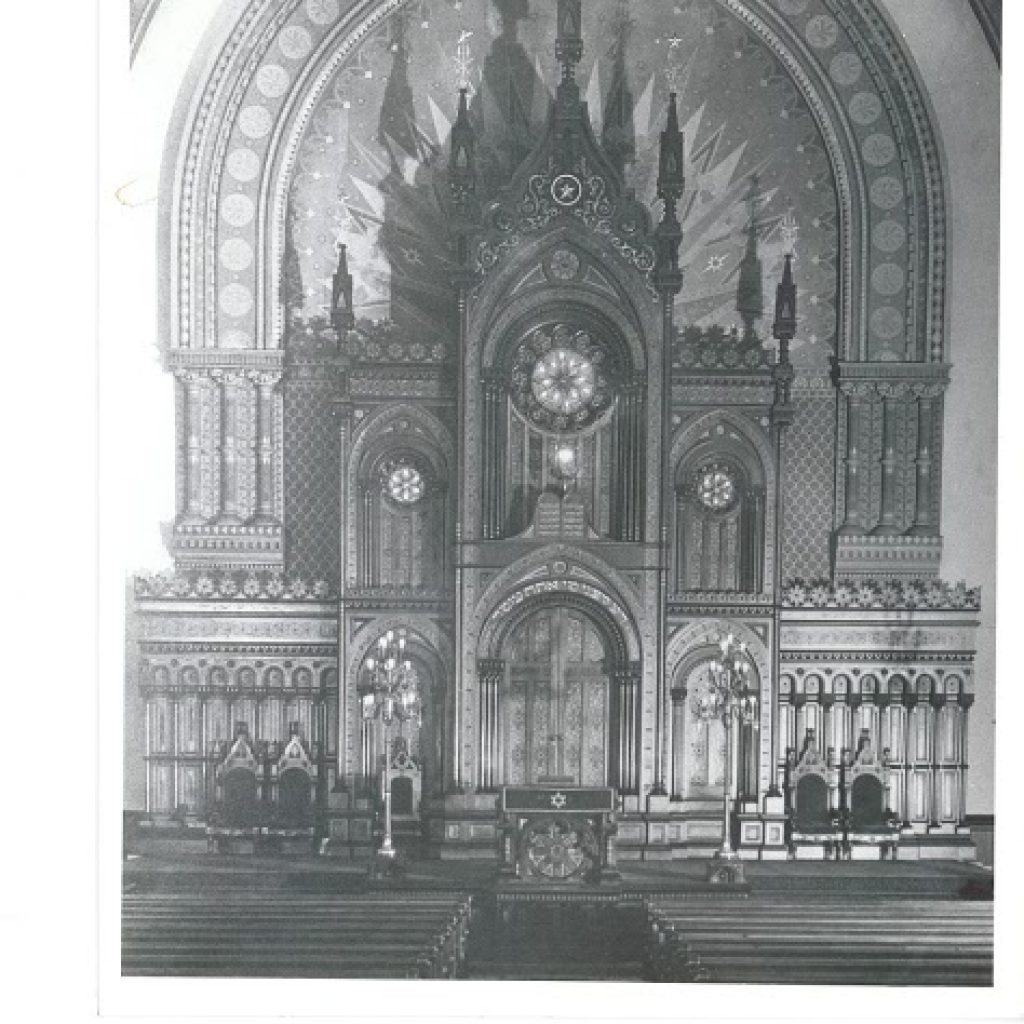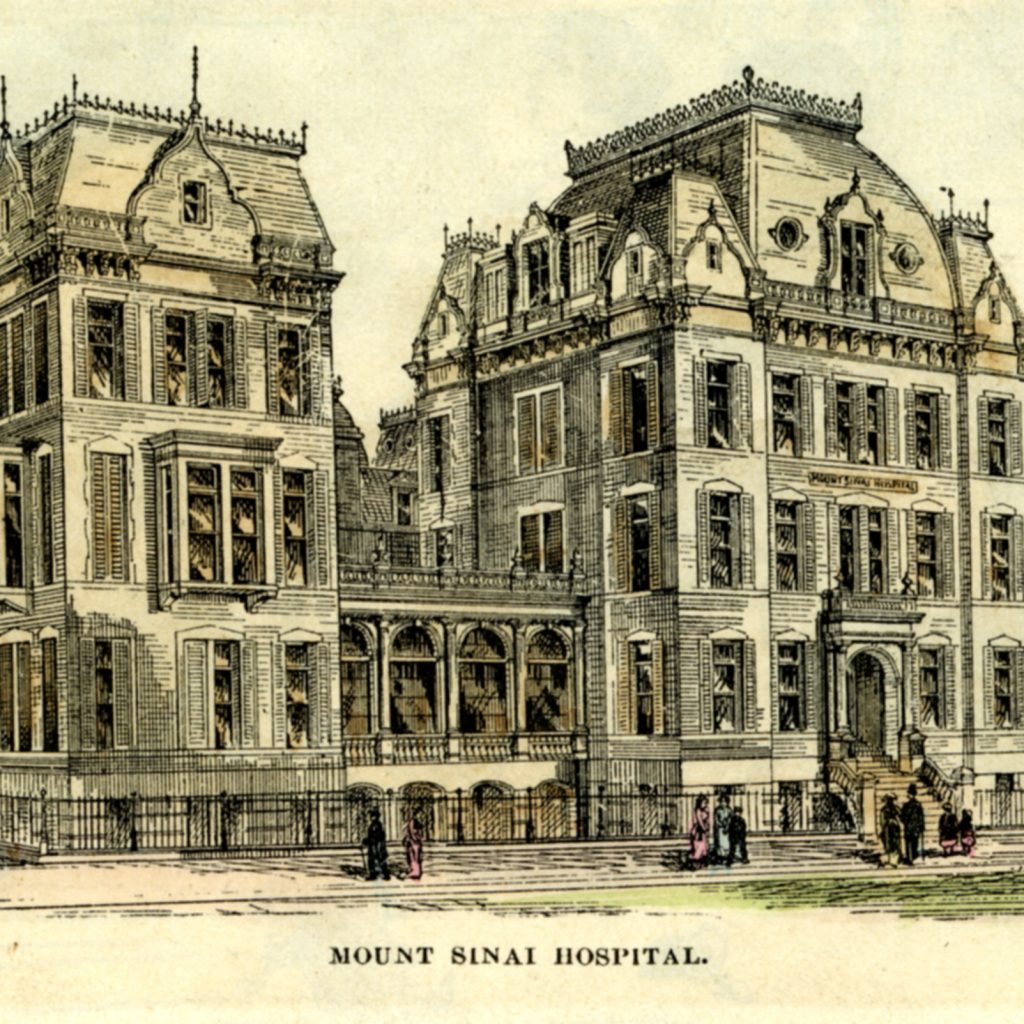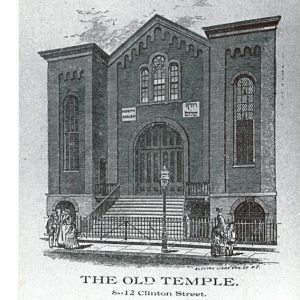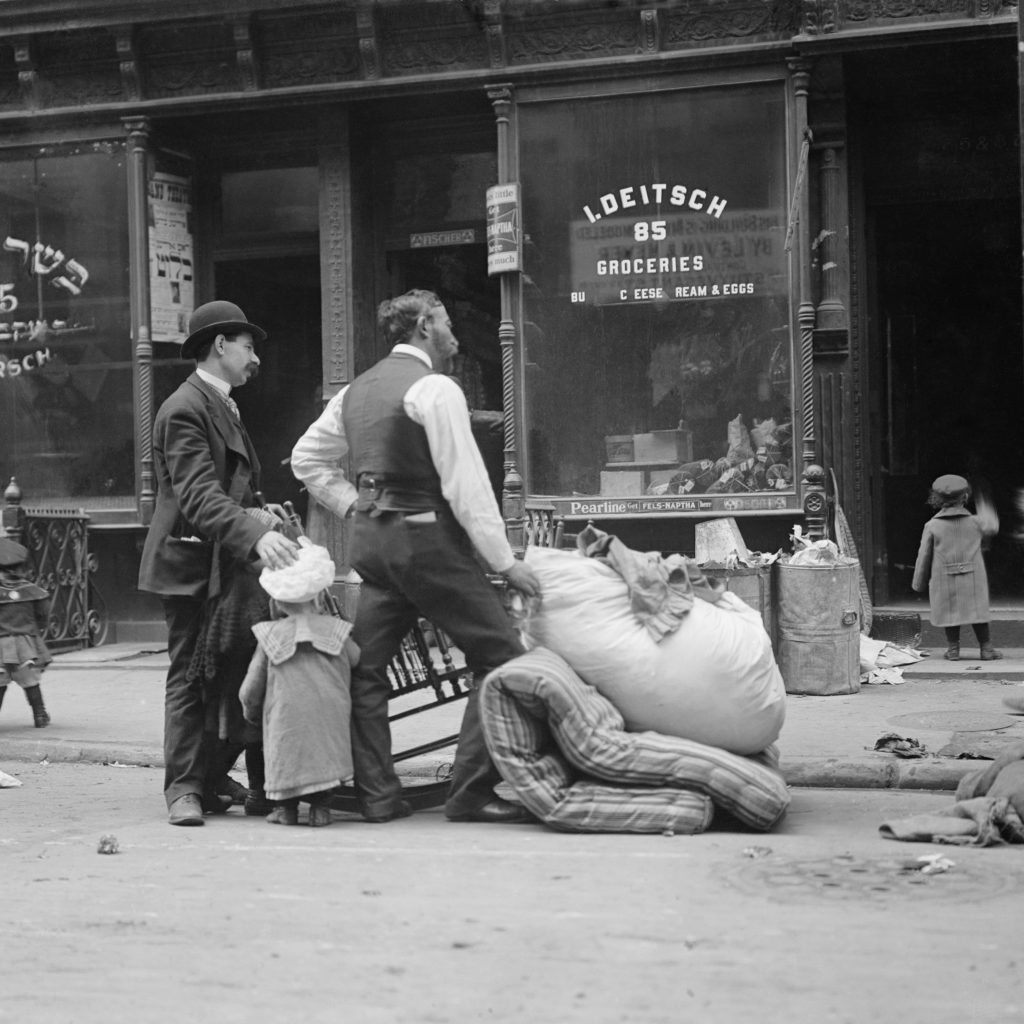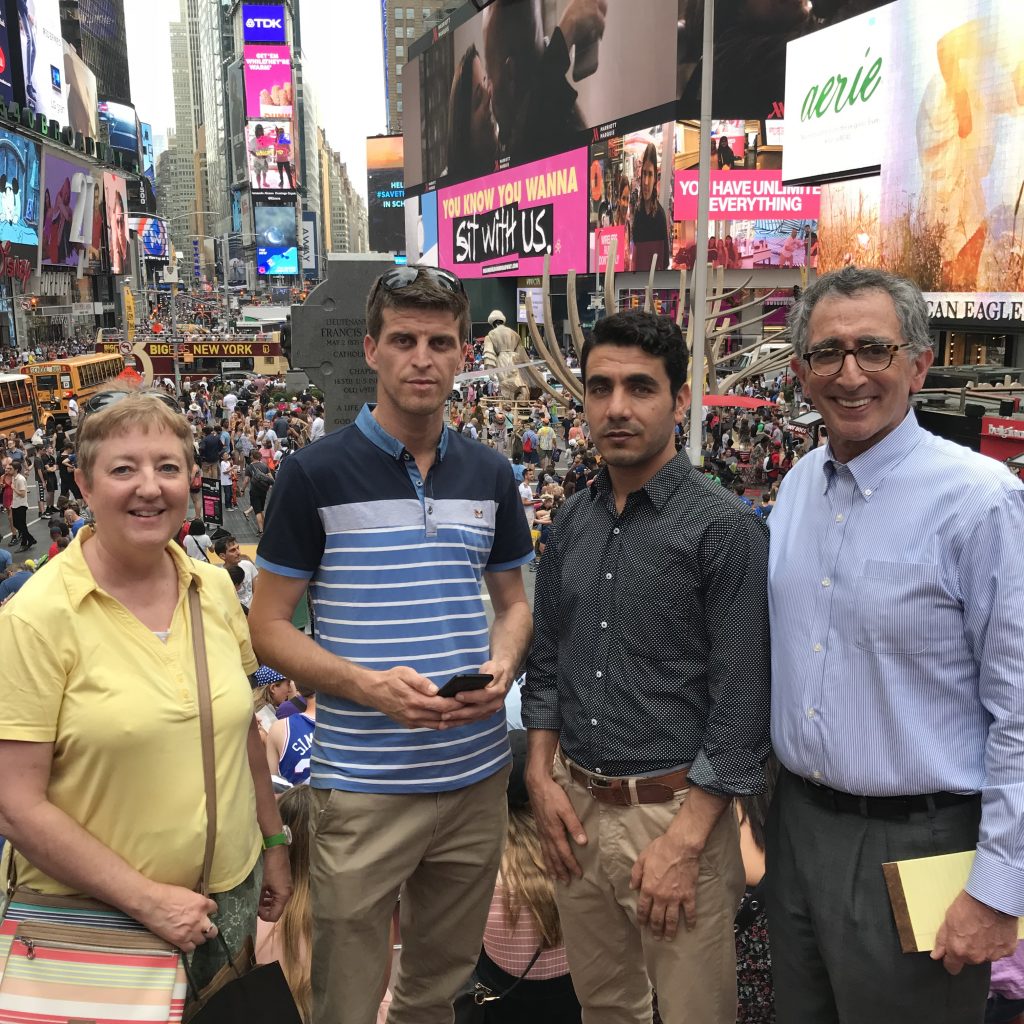
“As a child, I listened to the stories of my ancestors and their migration to America. They escaped persecution and poverty and hoped to find freedom and opportunity in our great country. I was motivated to volunteer to support the asylum seekers as a way to honor those stories. It is a way to return the kindness shown to my family, I close my eyes and see my grandfather’s smiling face when I extend my hand to help.”
Wendy Tinkoff
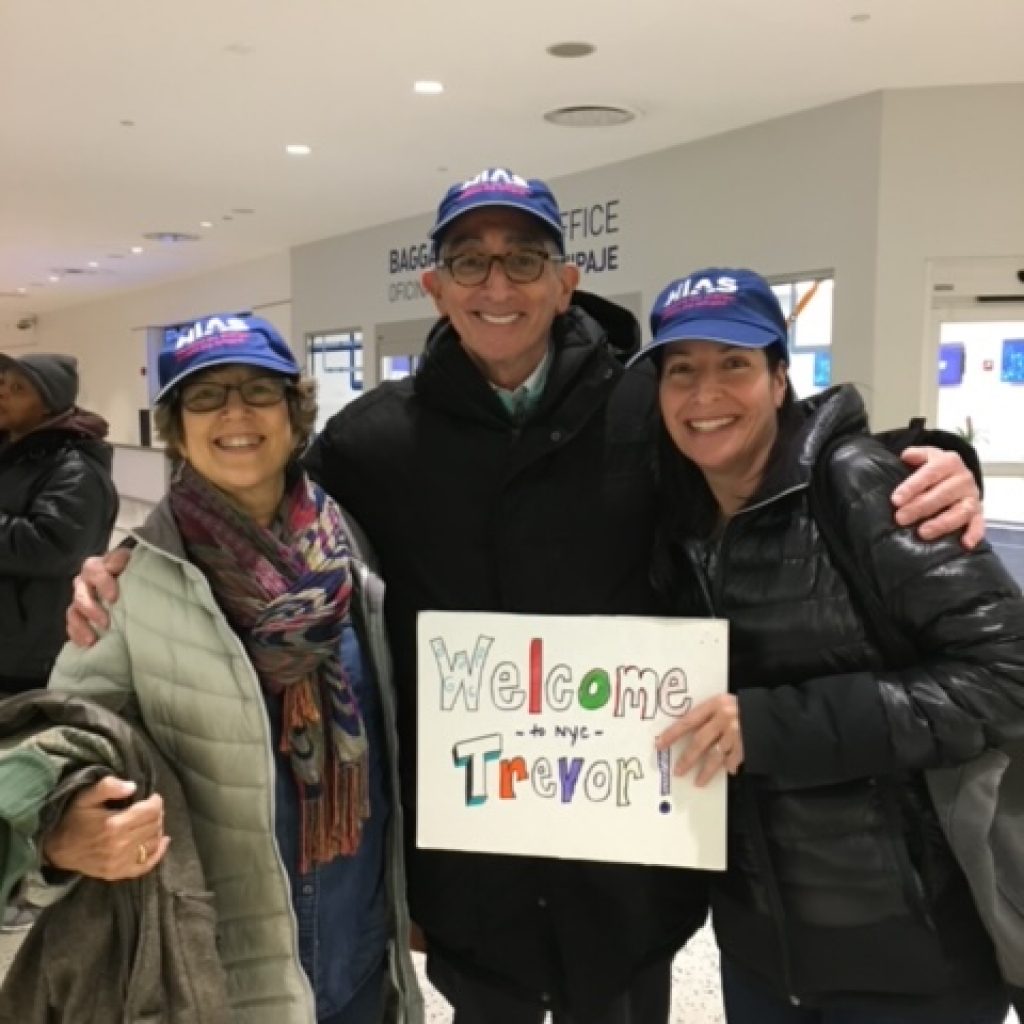
“For me, this work is at the heart of being a human. The plight of the refugee, of the asylum seeker, so deeply heartbreaking to me as a human, and also as a Jew. The stories call to me–the stories of people who have been forced to say goodbye to everything they ever knew in order to survive, of people who arrive in a place they do not know, of people who have nothing but what they could carry, people who have lost everything. Their stories break my heart open and compel me to help. I am proud to be part of a community that is doing so much to help those in need.”
Cantor Shayna De Lowe
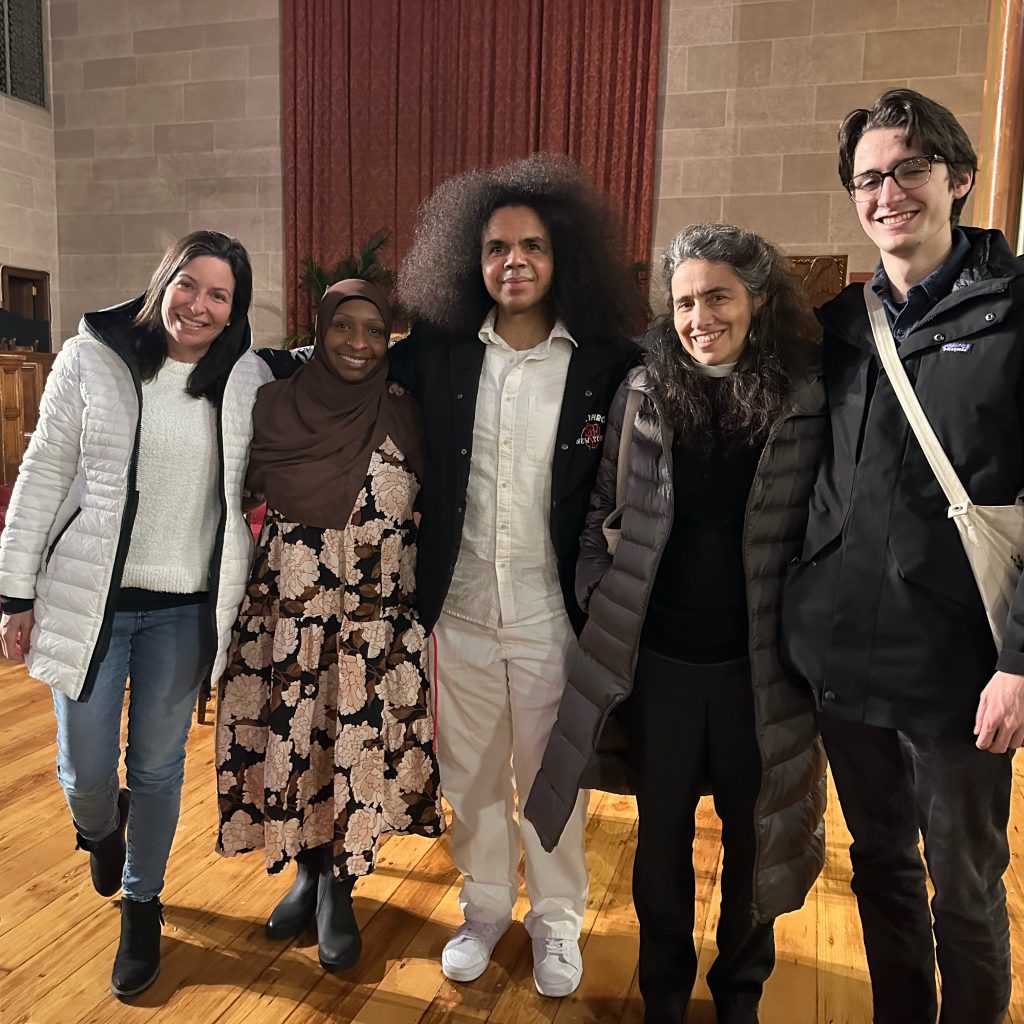
“We are honored to be a part of a congregation that has extended open arms to our community beyond the walls of our synagogue. We are helping asylum seekers because so many refugees are fleeing countries because they don’t have the right to worship, to vote and support their own candidates, or to educate themselves because of their gender. Many simply can’t afford to live where work is limited. We are privileged in our free choices and resources but we must never take them for granted. Supporting refugees seeking asylum reminds me of my own blessings every day and the importance of helping those less fortunate who risk everything to start over in our country.”
Jill Temkin & Carol Kurtz
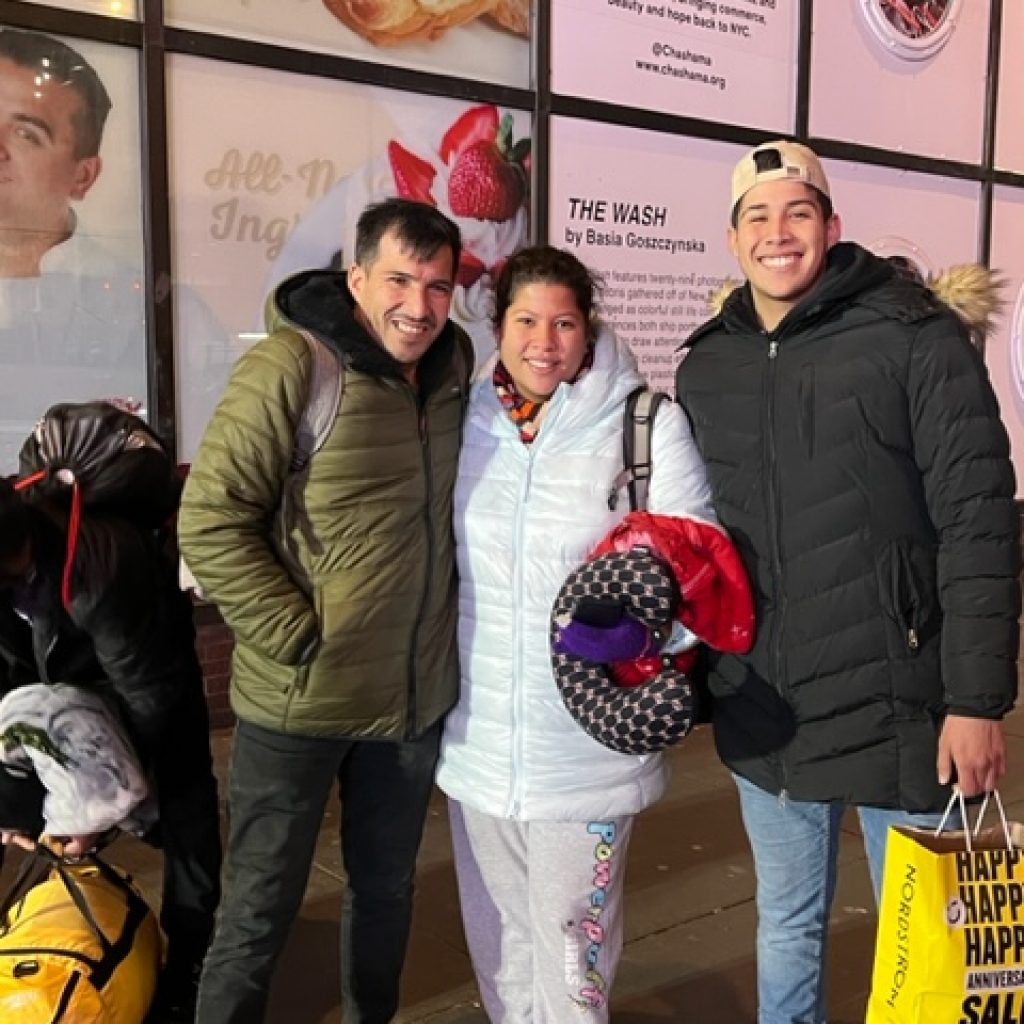
“I volunteer to help asylum seekers to do my part in Tikkun Olam. Asylum seekers are the bravest, kindest and most grateful people you’ll ever meet. Their determination to make a better life for themselves and their families inspires me like nothing else can. I also love surrounding myself with people who HELP asylum seekers and am equally inspired by their generosity. “
Val Coleman
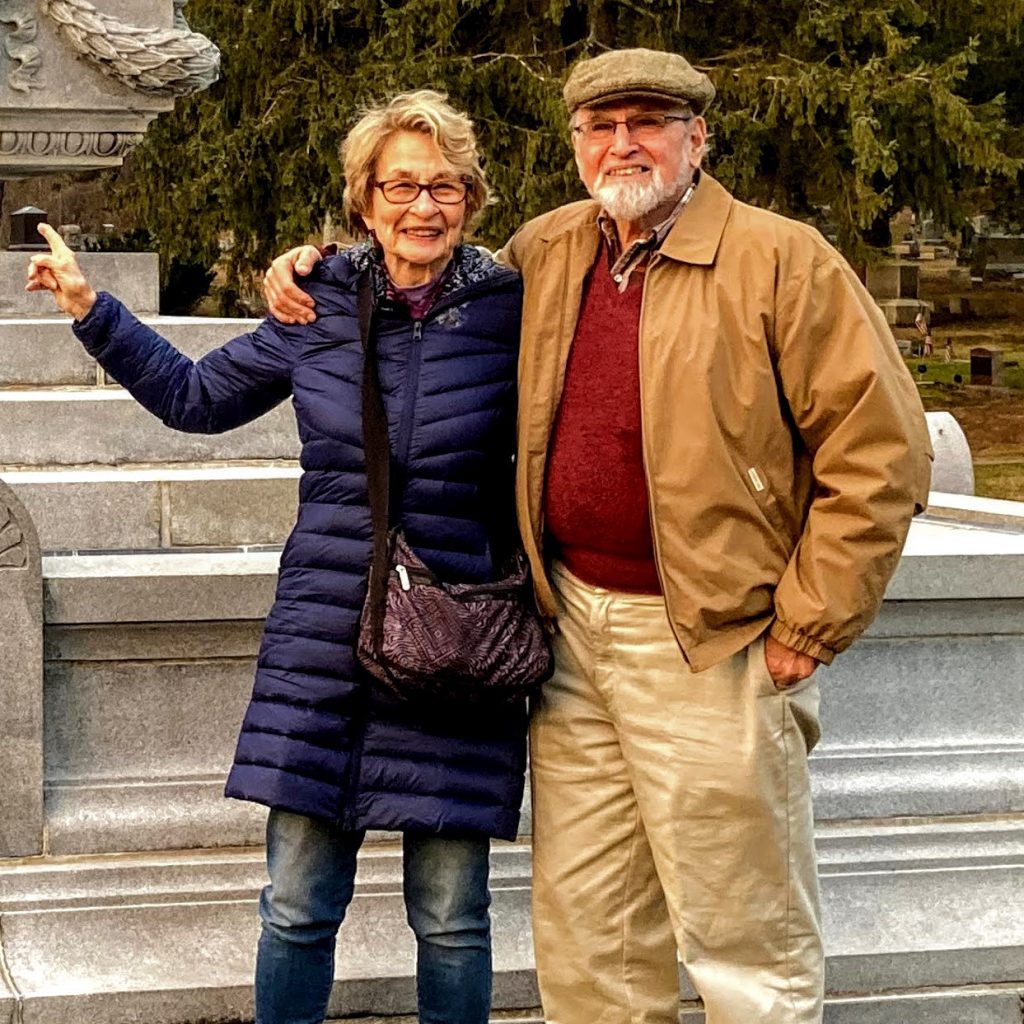
“Supporting asylum seekers appealed to us as we had been thinking about how to be involved and best help. With our family’s history as immigrants fleeing persecution and given Abraham’s upbringing in Mexico, we hoped our experience would be helpful in reaching out to and interfacing with the families.”
Jennifer Chu & Abraham Bleiberg
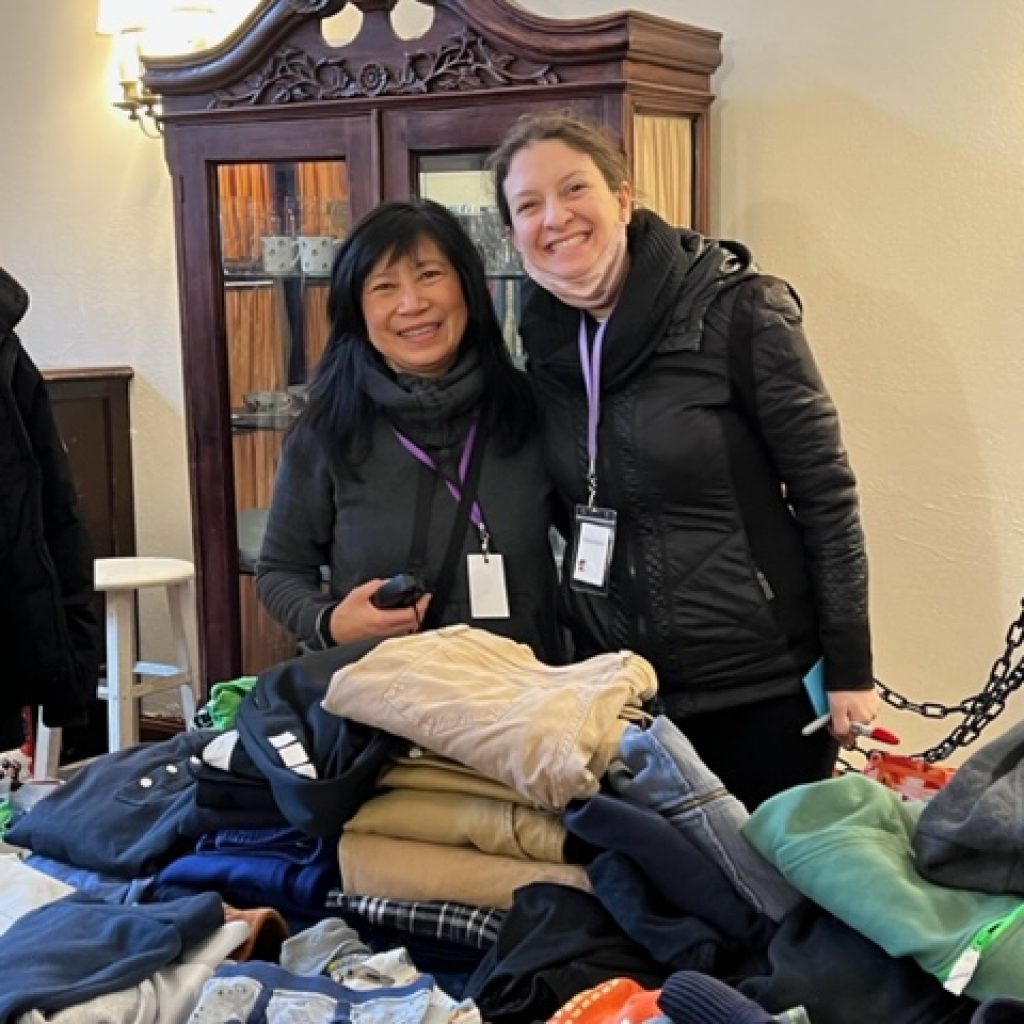
“When we learned that Congregation Rodeph Shalom would be connecting congregants with asylum-seeking families from Venezuela we knew that we would volunteer and that we had chosen the right Congregation for our family.
We look forward to meeting with Mariangel and Fabiana – it is the highlight of our weekend. We are always amazed at how much English they have learned from week to week and we are thankful they are patient with our Spanish!
Knowing them is a joy and being part of their American story is an honor.”
We look forward to meeting with Mariangel and Fabiana – it is the highlight of our weekend. We are always amazed at how much English they have learned from week to week and we are thankful they are patient with our Spanish!
Knowing them is a joy and being part of their American story is an honor.”
Kayle Becker & Piper Ariella
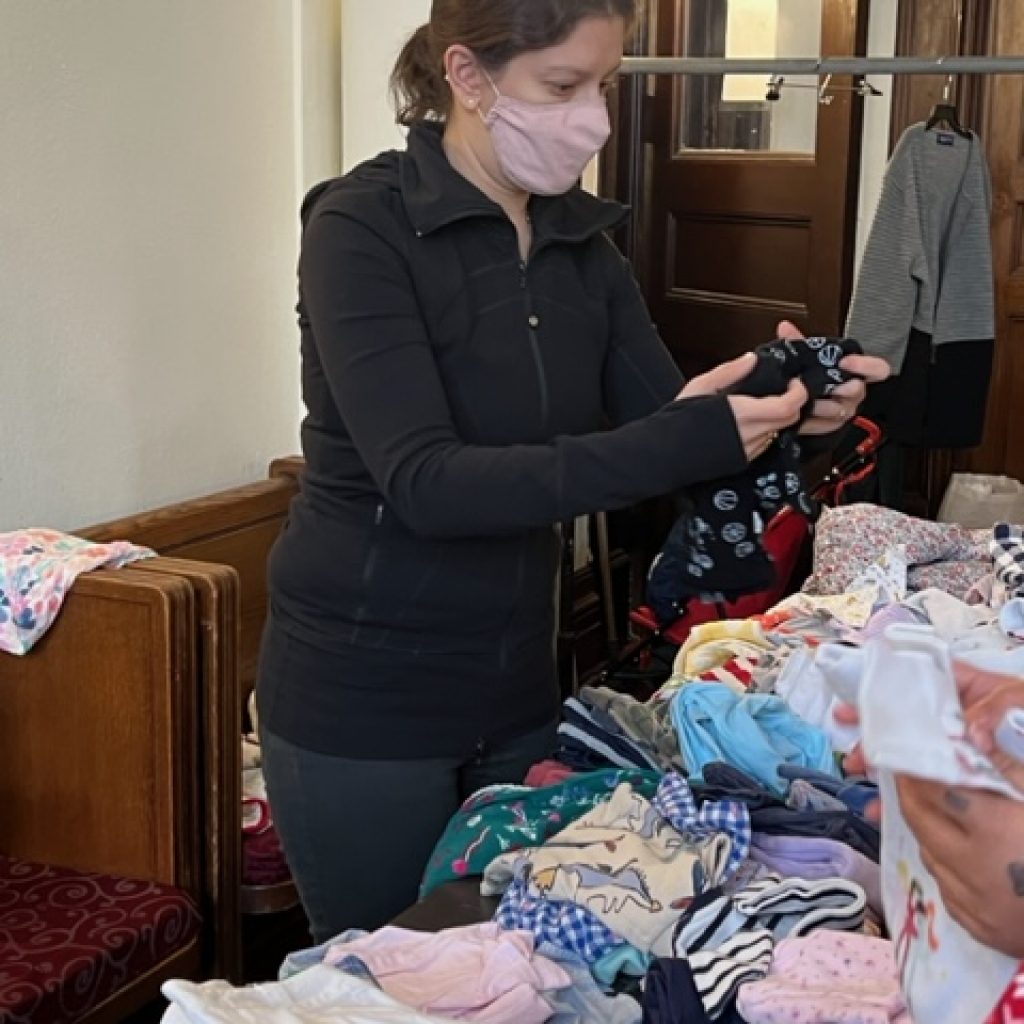
“After the 2016 Presidential election, we became concerned with the direction the country, particularly the new administration, was taking with respect to immigrants in general and asylum seekers in particular. We thought our skills as lawyers could be useful although we had no experience in this complicated area of the law. We heard that the Immigration Justice Campaign was seeking pro bono lawyers to represent asylum seekers, and we volunteered. We were provided hours of training and the on-call mentoring assistance of an experienced immigration attorney. With this support, we successfully represented five asylum seekers and Henry represented two more. We obtained either asylum or the right to remain in the US for all seven and are now helping John Harry, CRS’s Venezuelan refugee in his quest for asylum for himself and his family.”
Helen & Henry Freedman
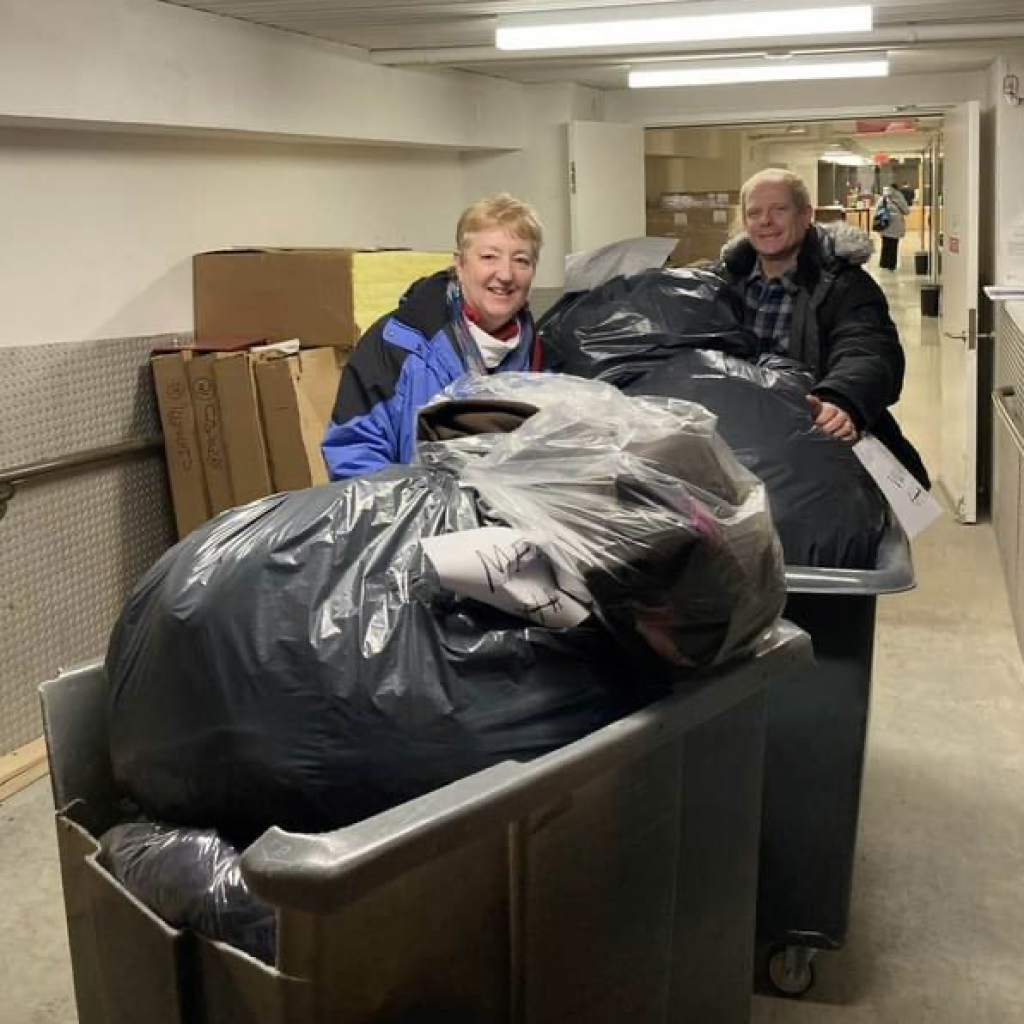
“I volunteered to participate with the refugee resettlement committee at Rodeph Sholom and then, when asked, agreed to chair the committee with Janie Roher. My motivations were simple: there but for the grace of God go I. My grandparents fled Russia in the early part of the 20th century for the United States and were it not for the support from both their relatives already in the US and the Jewish community, their life in the United States would have been much more difficult and challenging. And so, I was merely “paying it forward.” And in return for providing support to 4 young men from Pakistan I learned so much about their lives, community and religion. I know they came to respect and appreciate the Jewish community that opened itself to them.”
Claudia Wagner
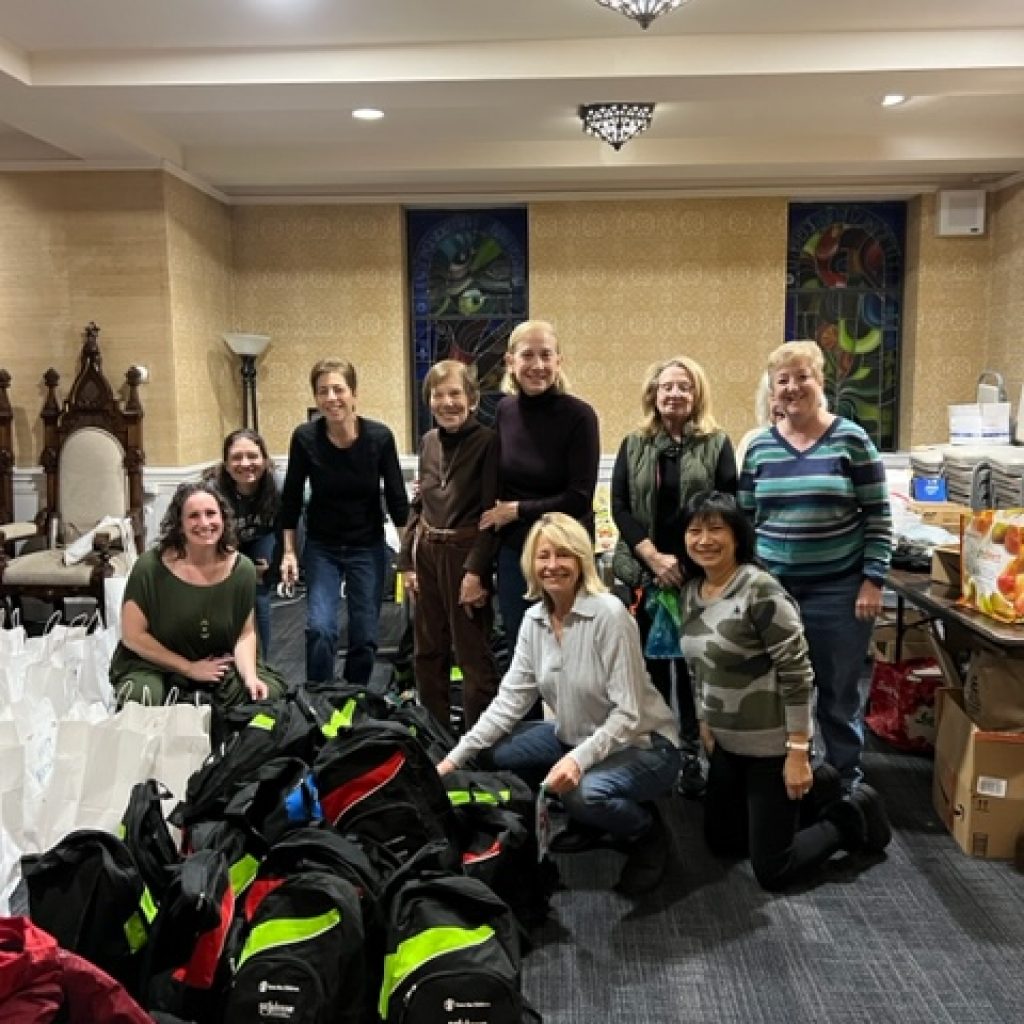
“I help asylum seekers to ensure that they are greeted with warmth as they integrate into New York City. I speak Spanish and I try to communicate that we are grateful they are here.”
Rabbi Juli Karol
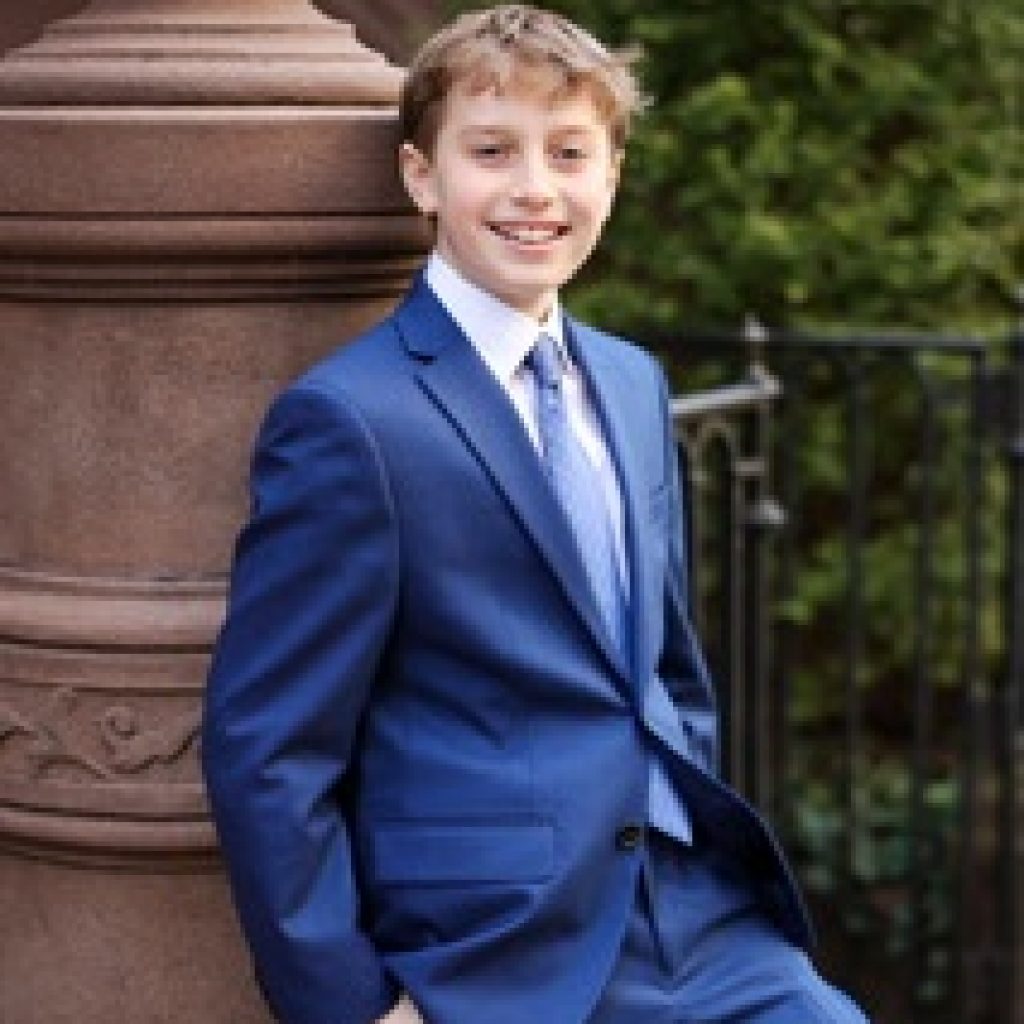
“As a child, I listened to the stories of my ancestors and their migration to America. They escaped persecution and poverty and hoped to find freedom and opportunity in our great country. I was motivated to volunteer to support the asylum seekers as a way to honor those stories. It is a way to return the kindness shown to my family, I close my eyes and see my grandfather’s smiling face when I extend my hand to help.”
Wendy Tinkoff
“For me, this work is at the heart of being a human. The plight of the refugee, of the asylum seeker, is so deeply heartbreaking to me as a human, and also as a Jew. The stories call to me–the stories of people who have been forced to say goodbye to everything they ever knew in order to survive, of people who arrive in a place they do not know, of people who have nothing but what they could carry, people who have lost everything. Their stories break my heart open and compel me to help. I am proud to be part of a community that is doing so much to help those in need.”
Cantor Shayna De Lowe
“We are honored to be a part of a congregation that has extended open arms to our community beyond the walls of our synagogue. We are helping asylum seekers because so many refugees are fleeing countries because they don’t have the right to worship, vote and support their own candidates, or to educate themselves because of their gender. Many simply can’t afford to live where work is limited. We are privileged in our free choices and resources but we must never take them for granted. Supporting refugees seeking asylum reminds me of my own blessings every day and the importance of helping those less fortunate who risk everything to start over in our country.”
Jill Temkin & Carol Kurtz
“I volunteer to help asylum seekers to do my part in Tikkun Olam. Asylum seekers are the bravest, kindest, and most grateful people you’ll ever meet. Their determination to make a better life for themselves and their families inspires me like nothing else can. I also love surrounding myself with people who HELP asylum seekers and am equally inspired by their generosity. “
Val Coleman
“Supporting asylum seekers appealed to us as we had been thinking about how to be involved and best help. With our family’s history as immigrants fleeing persecution and given Abraham’s upbringing in Mexico, we hoped our experience would be helpful in reaching out to and interfacing with the families.”
Jennifer Chu & Abraham Bleiberg
“When we learned that Congregation Rodeph Shalom would be connecting congregants with asylum-seeking families from Venezuela we knew that we would volunteer and that we had chosen the right Congregation for our family.
We look forward to meeting with Mariangel and Fabiana – it is the highlight of our weekend. We are always amazed at how much English they have learned from week to week and we are thankful they are patient with our Spanish!
Knowing them is a joy and being part of their American story is an honor.”
We look forward to meeting with Mariangel and Fabiana – it is the highlight of our weekend. We are always amazed at how much English they have learned from week to week and we are thankful they are patient with our Spanish!
Knowing them is a joy and being part of their American story is an honor.”
Kayle Becker & Piper Ariella
“After the 2016 Presidential election, we became concerned with the direction the country, particularly the new administration, was taking with respect to immigrants in general and asylum seekers in particular. We thought our skills as lawyers could be useful although we had no experience in this complicated area of the law. We heard that the Immigration Justice Campaign was seeking pro bono lawyers to represent asylum seekers, and we volunteered. We were provided hours of training and the on-call mentoring assistance of an experienced immigration attorney. With this support, we successfully represented five asylum seekers and Henry represented two more. We obtained either asylum or the right to remain in the US for all seven and are now helping John Harry, CRS’s Venezuelan refugee in his quest for asylum for himself and his family.”
Helen & Henry Freedman
“I volunteered to participate with the refugee resettlement committee at Rodeph Sholom and then, when asked, agreed to chair the committee with Janie Roher. My motivations were simple: there but for the grace of God go I. My grandparents fled Russia in the early part of the 20th century for the United States and were it not for the support from both their relatives already in the US and the Jewish community, their life in the United States would have been much more difficult and challenging. And so, I was merely “paying it forward.” And in return for providing support to 4 young men from Pakistan, I learned so much about their lives, community, and religion. I know they came to respect and appreciate the Jewish community that opened itself to them.”
Claudia Wagner
“I decided to help the asylum seekers because my parsha for my b’nai mitzvah made me think about how hard it was for the Israelites when they were crossing the desert, even though they were finally free, they struggled so much. This made the connection to asylum seekers also struggling with their journey to the United States. They arrive and are free but have no money, food, or shelter. I am thankful that my family and friends supported me in raising money to support the asylum seekers. I am hoping to be able to work more directly with them soon.”
Miles Shankman
“I help asylum seekers to ensure that they are greeted with warmth as they integrate into New York City. I speak Spanish and I try to communicate that we are grateful they are here.”
Rabbi Juli Karol
“Rodeph Sholom taught me that social consciousness and whatever small action one person takes can have a great impact on the lives of others. When our former US President all but closed the doors to immigrants, I felt strongly that CRS should, and could, do something to counter his closed-door policy. With the approval of the Board, the partnership of HIAS, the outpouring of support from our congregants, and the clear-headed energy of a co-chair – Claudia Wagner – we welcomed four young men from Pakistan. We housed them, clothed them, supported their job-hunting – again with help from the congregation – and launched their lives here in the US. They are now independent, happy to have learned about our community, and eager to become US citizens. I would not have attempted to help had I not been a member of CRS and watched over many years how this community has “walked the walk.””
Janie Rohrer
“When I heard that the synagogue was organizing efforts to help immigrants from Venezuela, I had no doubt that I SHOULD help. After all, we were wandering Jews; our history is defined by immigration. I am an immigrant myself, and while I came to the US with all the comforts imaginable, I know first-hand how hard being in a new country could be. So, I had to do it, even to help alleviate the human tragedy that Venezuela has become.”
Lucila Broide
“For me, the work is very personal. Both of my parents were Holocaust survivors. Only sixteen when the War began, they arrived in the US without any money, unable to speak English, lacking high school degrees, and were filled with extraordinarily traumatic memories. They found work in a factory and slowly began to build a life together. Memories of food insecurity would haunt them for the rest of their lives.
I believe strongly that our country, founded by refugees from religious persecution, should always welcome asylum seekers. The political, economic and social conditions in the countries which today’s refugees flee are atrocious.
I am so proud to belong to a community that embraces the stranger, which has never hesitated to step up and offer assistance so that today’s new arrivals will have the same opportunity my parents had to establish a new life in a new land.”
I believe strongly that our country, founded by refugees from religious persecution, should always welcome asylum seekers. The political, economic and social conditions in the countries which today’s refugees flee are atrocious.
I am so proud to belong to a community that embraces the stranger, which has never hesitated to step up and offer assistance so that today’s new arrivals will have the same opportunity my parents had to establish a new life in a new land.”
Annette Orenstein
“My motivation to volunteer stems from several places: compassion and concern for the plight of refugees; the story of my family’s ancestors; and the Torah teaches us to welcome the stranger. Since my involvement with the refugee program at CRS, I have found the experience personally rewarding.
The stories of refugees who risk their lives and separation from family to escape intolerable situations in the hope of beginning a new life are truly remarkable. Their hardships echo my own family history from Russia; my paternal great-grandparents emigrated in the mid-1800s and my maternal grandparents in the early 1900s. They arrived with very little yet they shared the same strong aspiration for a better and safer life.
The young men we helped through the CRS/HIAS program emigrated alone from Pakistan. Well-educated in their home country, several in pre-med and pre-engineering studies, they chose a quicker road to financial independence in the U.S. in order to send money back to their families and to work towards citizenship. In less than five years since their arrival in NYC, they are now dispersed across the country. Three of the four are long-haul truck drivers, two have married hometown sweethearts, one is a new father, and they hope to arrange for family members to immigrate to the U.S. to join them.
Despite the horrific conditions of their escape from Pakistan and internments prior to arriving in this country, it has been gratifying to know that we have been instrumental in helping them get on their feet. It is also heart-warming to see these young men grow and become self-sufficient, hardworking contributors to our society. We need more like them. Their gratitude for the fresh start and appreciation for the volunteer assistance has been undeniable. Their perspectives on personal freedom and opportunity are incredibly refreshing and the hunger to succeed can be so much greater for those who have experienced adversity.
I can’t help but ponder if the refugees and migrants arriving today, who left behind very oppressed circumstances, have it harder than generations before. Although my ancestors traveled to this country in steerage, they did arrive with a suitcase and with each other. Many today come with even less. Helping this new wave of migrants seeking asylum in the U.S., whether preparing a hot meal, providing clothes, or coordinating donations, is a basic but essential way to welcome the stranger in our community.”
The stories of refugees who risk their lives and separation from family to escape intolerable situations in the hope of beginning a new life are truly remarkable. Their hardships echo my own family history from Russia; my paternal great-grandparents emigrated in the mid-1800s and my maternal grandparents in the early 1900s. They arrived with very little yet they shared the same strong aspiration for a better and safer life.
The young men we helped through the CRS/HIAS program emigrated alone from Pakistan. Well-educated in their home country, several in pre-med and pre-engineering studies, they chose a quicker road to financial independence in the U.S. in order to send money back to their families and to work towards citizenship. In less than five years since their arrival in NYC, they are now dispersed across the country. Three of the four are long-haul truck drivers, two have married hometown sweethearts, one is a new father, and they hope to arrange for family members to immigrate to the U.S. to join them.
Despite the horrific conditions of their escape from Pakistan and internments prior to arriving in this country, it has been gratifying to know that we have been instrumental in helping them get on their feet. It is also heart-warming to see these young men grow and become self-sufficient, hardworking contributors to our society. We need more like them. Their gratitude for the fresh start and appreciation for the volunteer assistance has been undeniable. Their perspectives on personal freedom and opportunity are incredibly refreshing and the hunger to succeed can be so much greater for those who have experienced adversity.
I can’t help but ponder if the refugees and migrants arriving today, who left behind very oppressed circumstances, have it harder than generations before. Although my ancestors traveled to this country in steerage, they did arrive with a suitcase and with each other. Many today come with even less. Helping this new wave of migrants seeking asylum in the U.S., whether preparing a hot meal, providing clothes, or coordinating donations, is a basic but essential way to welcome the stranger in our community.”
Liz Lasdon
“In the Torah (Genesis and Exodus), “Hineni” appears eight times, and in the Hebrew Scriptures (adding in Samuel and Isaiah), it appears seventeen times. It is not only how God answers Isaiah in Isaiah 58, but also how humans like Abraham and Moses answer God in the Bible, as well. While trying to figure out why this phrase has always resonated with me, I stumbled upon a passage by Avital Snow who writes, “What makes ‘hineni’ such a powerful statement? It is an offer of complete availability, of total readiness to serve. When we utter ‘hineni,’ we make ourselves fully available to whatever it is God might ask of us. Even without knowing what that might be. The answer of ‘hineni’ is one of faith.” For me, it’s that and more: It’s making myself as fully available as I am able, to whomever it is who might need me.
At the end of the summer of 2022, I heard that busloads of asylum seekers were being sent from Texas to New York City. I had followed the border crisis for years and I knew injustices were happening all the time. But it wasn’t until I went to Port Authority and witnessed people – adults, children, families – coming off the busses with nothing at all, that I saw the injustices with my own eyes and knew that I wanted to step in to help repair the breach. There are many wonderful organizations providing food, shelter, and clothing. What I quickly realized was that many people need much more than material support. LGBTQIA+ community members need an accepting person to speak to about where they can safely seek shelter; undocumented people need someone to listen to them as they speak about their fears of arriving without a single document proving their identity; those who are bullied in their shelters need help navigating the system to try to file a complaint and//or be transferred; unaccompanied minors need help finding a safe place to stay; pregnant women need help finding a doctor and help getting to their appointments; and most need a smile, a hug and an advocate to help navigate the multitude of barriers and injustices migrants with no money and no ability to legally work face while trying to survive in our incredible sanctuary city. I have chosen to help repair the breach by showing up for some of NYC’s most vulnerable people by living out the words I have heard my whole life – “Hineni! Here I Am.”
Throughout my most recent advocacy journey, I have been inspired by my supportive family and by many other people I love and respect – both new friends and old. From fellow advocates and volunteers to clergy and to my many new friends who have come here seeking safety, I have been challenged and energized in my quest to help those who need us most and to block out the voices of those who want to widen the breach. I hope that during this important season, we can all listen to Isaiah and to not only fast, but to fast with intention. Instead of spending 40 days giving up something that feels hard, remember during and after the 40 days, to say, “Here I Am.” How can I help repair the breach and bring justice to everyone, every day.”
At the end of the summer of 2022, I heard that busloads of asylum seekers were being sent from Texas to New York City. I had followed the border crisis for years and I knew injustices were happening all the time. But it wasn’t until I went to Port Authority and witnessed people – adults, children, families – coming off the busses with nothing at all, that I saw the injustices with my own eyes and knew that I wanted to step in to help repair the breach. There are many wonderful organizations providing food, shelter, and clothing. What I quickly realized was that many people need much more than material support. LGBTQIA+ community members need an accepting person to speak to about where they can safely seek shelter; undocumented people need someone to listen to them as they speak about their fears of arriving without a single document proving their identity; those who are bullied in their shelters need help navigating the system to try to file a complaint and//or be transferred; unaccompanied minors need help finding a safe place to stay; pregnant women need help finding a doctor and help getting to their appointments; and most need a smile, a hug and an advocate to help navigate the multitude of barriers and injustices migrants with no money and no ability to legally work face while trying to survive in our incredible sanctuary city. I have chosen to help repair the breach by showing up for some of NYC’s most vulnerable people by living out the words I have heard my whole life – “Hineni! Here I Am.”
Throughout my most recent advocacy journey, I have been inspired by my supportive family and by many other people I love and respect – both new friends and old. From fellow advocates and volunteers to clergy and to my many new friends who have come here seeking safety, I have been challenged and energized in my quest to help those who need us most and to block out the voices of those who want to widen the breach. I hope that during this important season, we can all listen to Isaiah and to not only fast, but to fast with intention. Instead of spending 40 days giving up something that feels hard, remember during and after the 40 days, to say, “Here I Am.” How can I help repair the breach and bring justice to everyone, every day.”
Candice Braun








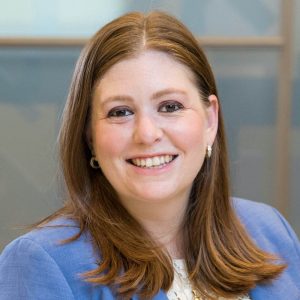
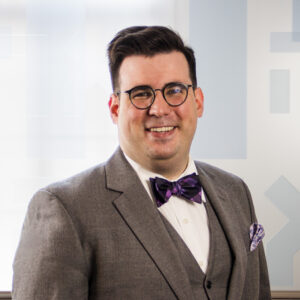 Justin Callis (he/him), our Cantorial Intern, is a fourth-year student at Hebrew Union College-Jewish Institute of Religion in the Debbie Friedman School of Sacred Music. He is the recipient of the Reuben Peretz Abelson Prize for dedication to Yiddish Song, the Temple Israel of Boston Cantorial Prize, and the Lee Gura Memorial Prize for Aptitude in Synagogue Choral Music.
Justin Callis (he/him), our Cantorial Intern, is a fourth-year student at Hebrew Union College-Jewish Institute of Religion in the Debbie Friedman School of Sacred Music. He is the recipient of the Reuben Peretz Abelson Prize for dedication to Yiddish Song, the Temple Israel of Boston Cantorial Prize, and the Lee Gura Memorial Prize for Aptitude in Synagogue Choral Music.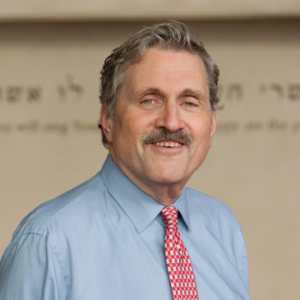
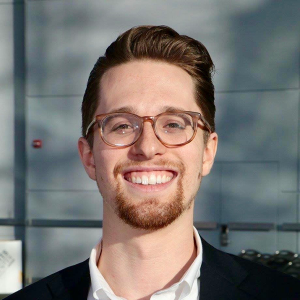
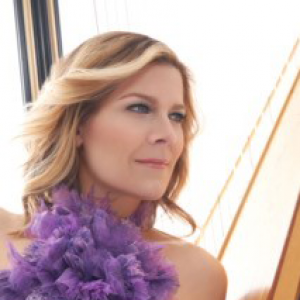
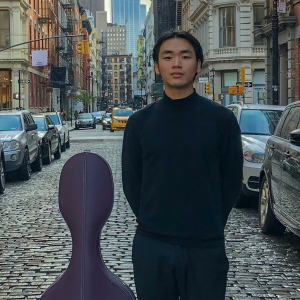
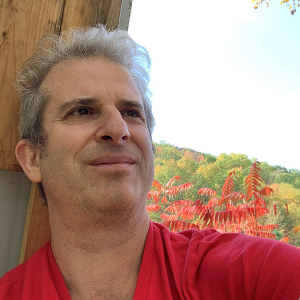
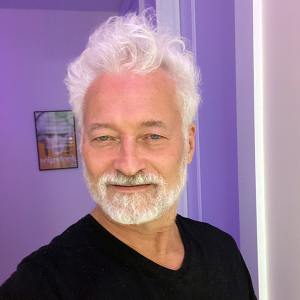
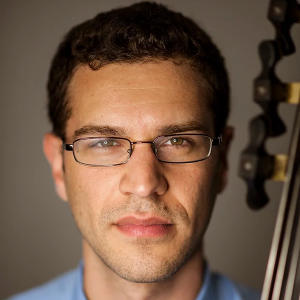
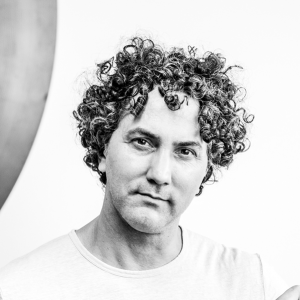
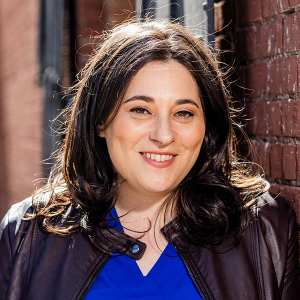

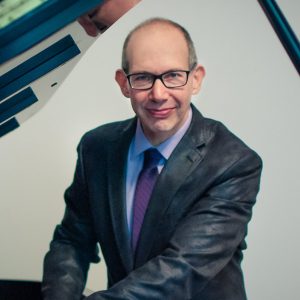
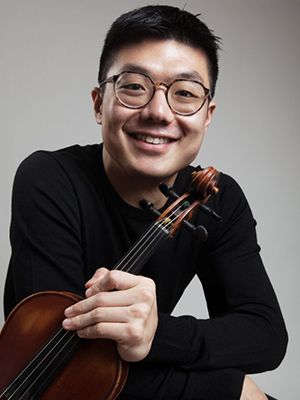 Known for his sweet and “sumptuous” (New York Times) tone, American-born Doori Na took up violin at the age of four and began his studies with Li Lin at the San Francisco Conservatory of Music. He quickly made his first performance with orchestra at age seven with the Peninsula Youth Symphony as the first prize winner of the concerto competition. Thereafter Mr. Na went on to win top prizes in The Sound of Music Festival, The Korea Times Youth Music Competition, the Chinese Music Teacher’s Association, The Menuhin Dowling Young Artist Competition, The Junior Bach Festival, VOCE of the Music Teacher’s Association of California, and The Pacific Musical Society. Receiving full scholarships to private high school Crossroads School of Arts and Sciences in Santa Monica, he moved to Los Angeles to study with renown violin teacher, Robert Lipsett, at The Colburn Music School. There he appeared as soloist with the Palisades Symphony, Brentwood Symphony, and Torrance Symphony. During that time, the summer of 2004 was Mr. Na’s first time at the Perlman Music Program where his expression and musical identity were greatly influenced. He has been a part of the program ever since and participated in many of their special residencies in Florida, Vermont, New York, and Israel.
Known for his sweet and “sumptuous” (New York Times) tone, American-born Doori Na took up violin at the age of four and began his studies with Li Lin at the San Francisco Conservatory of Music. He quickly made his first performance with orchestra at age seven with the Peninsula Youth Symphony as the first prize winner of the concerto competition. Thereafter Mr. Na went on to win top prizes in The Sound of Music Festival, The Korea Times Youth Music Competition, the Chinese Music Teacher’s Association, The Menuhin Dowling Young Artist Competition, The Junior Bach Festival, VOCE of the Music Teacher’s Association of California, and The Pacific Musical Society. Receiving full scholarships to private high school Crossroads School of Arts and Sciences in Santa Monica, he moved to Los Angeles to study with renown violin teacher, Robert Lipsett, at The Colburn Music School. There he appeared as soloist with the Palisades Symphony, Brentwood Symphony, and Torrance Symphony. During that time, the summer of 2004 was Mr. Na’s first time at the Perlman Music Program where his expression and musical identity were greatly influenced. He has been a part of the program ever since and participated in many of their special residencies in Florida, Vermont, New York, and Israel.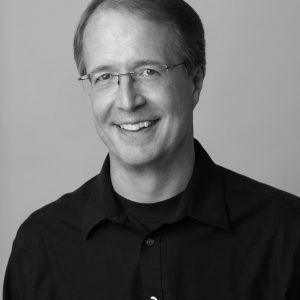 Violinist Michael Roth is a native of Scarsdale, NY and received his early musical training with Frances Magnes at the Hoff-Barthelson Music School. He attended Oberlin College and Conservatory, continuing his studies with Marilyn McDonald. At Oberlin, he won the Kaufman Prize for violin and First Prize in the Ohio String Teacher’s Association Competition. He completed his Master of Music degree at the University of Massachusetts where he worked with the distinguished American violinist and pedagogue Charles Treger and was a recipient of the Julian Olevsky Award. Mr. Roth is currently associate concertmaster of the New York City Ballet Orchestra and has appeared in chamber music and as a soloist with the company, most recently in the debut of “Slice Too Sharp”, a ballet of Biber and Vivaldi violin concerti, and “After the Rain”, violin music of Arvo Part. In addition he is a member of the Mostly Mozart Festival Orchestra, Principal 2nd violin of the Westchester Philharmonic, the American Composers Orchestra and the New York Pops. He was concertmaster of the Vermont Mozart Festival Orchestra for many years and often appeared as soloist there, as well as at the Caramoor and Bard Music Festivals. He has played and toured internationally with the Orpheus Chamber Orchestra and the New York Chamber Soloists.
Violinist Michael Roth is a native of Scarsdale, NY and received his early musical training with Frances Magnes at the Hoff-Barthelson Music School. He attended Oberlin College and Conservatory, continuing his studies with Marilyn McDonald. At Oberlin, he won the Kaufman Prize for violin and First Prize in the Ohio String Teacher’s Association Competition. He completed his Master of Music degree at the University of Massachusetts where he worked with the distinguished American violinist and pedagogue Charles Treger and was a recipient of the Julian Olevsky Award. Mr. Roth is currently associate concertmaster of the New York City Ballet Orchestra and has appeared in chamber music and as a soloist with the company, most recently in the debut of “Slice Too Sharp”, a ballet of Biber and Vivaldi violin concerti, and “After the Rain”, violin music of Arvo Part. In addition he is a member of the Mostly Mozart Festival Orchestra, Principal 2nd violin of the Westchester Philharmonic, the American Composers Orchestra and the New York Pops. He was concertmaster of the Vermont Mozart Festival Orchestra for many years and often appeared as soloist there, as well as at the Caramoor and Bard Music Festivals. He has played and toured internationally with the Orpheus Chamber Orchestra and the New York Chamber Soloists.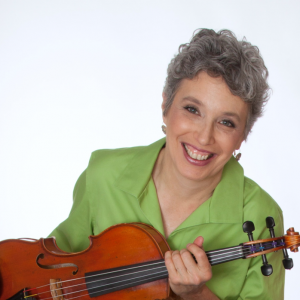 Sarah Adams, viola, performs locally with the New York Chamber Ensemble, the Claring Chamber Players, the Sherman Chamber Ensemble, the Friends of Mozart, and the Saratoga Chamber Players.
Sarah Adams, viola, performs locally with the New York Chamber Ensemble, the Claring Chamber Players, the Sherman Chamber Ensemble, the Friends of Mozart, and the Saratoga Chamber Players.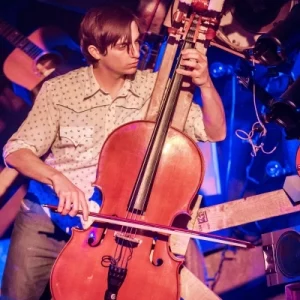
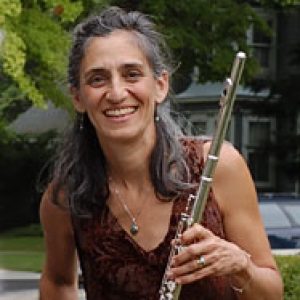 Praised by the New York Times as “irresistible in both music and performance.” flutist,
Praised by the New York Times as “irresistible in both music and performance.” flutist, 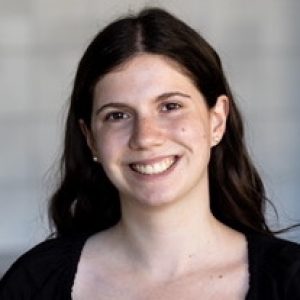
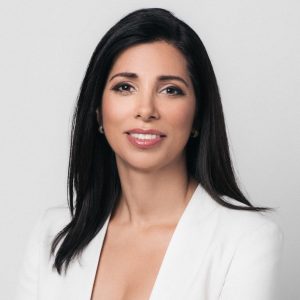
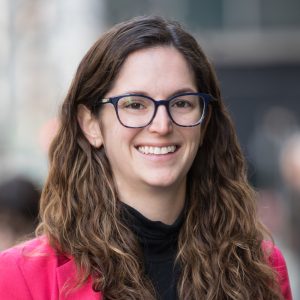
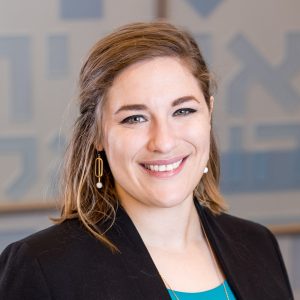 Rabbi Mira Weller (she/her) received her ordination at Hebrew Union College-Jewish Institute of Religion in Los Angeles in May 2022. She studied Culture and Politics at Georgetown University’s School of Foreign Service and received her Master’s in Jewish Education at the Rhea Hirsch School of Education at HUC-JIR. She is the proud recipient of awards for her studies in rabbinic literature, her work in Jewish education, and she was granted the Myrtle Lorch Pfaelzer-Monroe Pfaelzer Award for an Outstanding Female Rabbinical School Student (2022). Rabbi Mira speaks Hebrew and Spanish (so please practice with her!). She has a passion for uncovering new possibilities in the great wealth of our tradition and for making music inspired by Judaism’s many cultures. Her guilty pleasures include cupcakes, classical music, and philosophy.
Rabbi Mira Weller (she/her) received her ordination at Hebrew Union College-Jewish Institute of Religion in Los Angeles in May 2022. She studied Culture and Politics at Georgetown University’s School of Foreign Service and received her Master’s in Jewish Education at the Rhea Hirsch School of Education at HUC-JIR. She is the proud recipient of awards for her studies in rabbinic literature, her work in Jewish education, and she was granted the Myrtle Lorch Pfaelzer-Monroe Pfaelzer Award for an Outstanding Female Rabbinical School Student (2022). Rabbi Mira speaks Hebrew and Spanish (so please practice with her!). She has a passion for uncovering new possibilities in the great wealth of our tradition and for making music inspired by Judaism’s many cultures. Her guilty pleasures include cupcakes, classical music, and philosophy.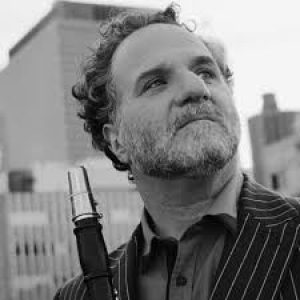
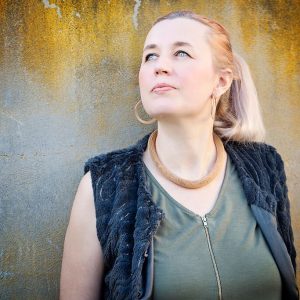 Based in New York since 2001, South African-born pianist, composer and producer has performed on four continents in leading venues such as Carnegie Hall, had her original music performed in venues such as New York’s Lincoln Center, appeared on a host of recordings of classical, world music and multi-genre recordings and produced numerous recordings and inter-disciplinary programs from Cape Town to Los Angeles. She has created her own unique language at the piano, made up of techniques she developed and experimented with to expand the piano into a full electro – acoustic orchestra.
Based in New York since 2001, South African-born pianist, composer and producer has performed on four continents in leading venues such as Carnegie Hall, had her original music performed in venues such as New York’s Lincoln Center, appeared on a host of recordings of classical, world music and multi-genre recordings and produced numerous recordings and inter-disciplinary programs from Cape Town to Los Angeles. She has created her own unique language at the piano, made up of techniques she developed and experimented with to expand the piano into a full electro – acoustic orchestra.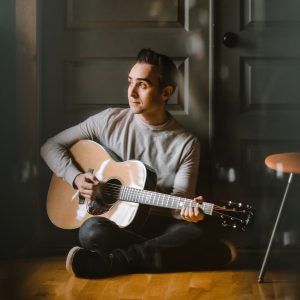 Alan Goodis is a touring Jewish musician playing over 150 events a year. Born and raised in Toronto, Alan is a proud product of URJ Goldman Union Camp Institute. Noted for his dedication to building relationships and community through music, Alan tours throughout the US to serve as an Artist-In-Residence and performer at Temples, Youth Conventions and Jewish summer camps.
Alan Goodis is a touring Jewish musician playing over 150 events a year. Born and raised in Toronto, Alan is a proud product of URJ Goldman Union Camp Institute. Noted for his dedication to building relationships and community through music, Alan tours throughout the US to serve as an Artist-In-Residence and performer at Temples, Youth Conventions and Jewish summer camps.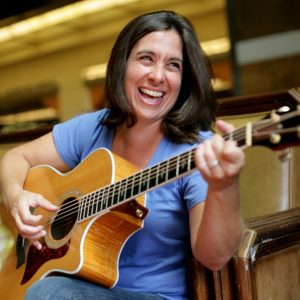 Julie Silver is one of the most celebrated and beloved performers in the world of contemporary Jewish music today. She tours throughout the world, and has been engaging audiences with her gorgeous compositions and liturgical settings, her lyrical guitar playing, her dynamic stage presence, and her megawatt smile for over 25 years.
Julie Silver is one of the most celebrated and beloved performers in the world of contemporary Jewish music today. She tours throughout the world, and has been engaging audiences with her gorgeous compositions and liturgical settings, her lyrical guitar playing, her dynamic stage presence, and her megawatt smile for over 25 years.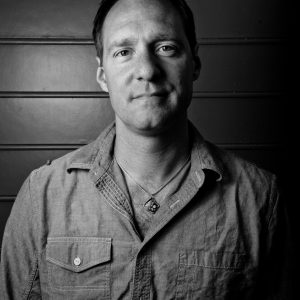 Dan is a product of the URJ Jewish camping movement. He has toured Jewish summer camps across North America for the last 15 years. A classically trained singer, Dan received his Bachelor of Music degree in vocal performance at the University of North Carolina. In 1995, realizing the potential of music to make powerful connections with Jewish youth, Dan established the Jewish rock band Eighteen. Since that time, Dan and Eighteen have released 13 albums. Songs like, L’takein, B’tzelem Elo-him, Kehillah Kedoshah, Chazak, Sweet As Honey, and Asher Yatzar have become Jewish communal anthems throughout North America.
Dan is a product of the URJ Jewish camping movement. He has toured Jewish summer camps across North America for the last 15 years. A classically trained singer, Dan received his Bachelor of Music degree in vocal performance at the University of North Carolina. In 1995, realizing the potential of music to make powerful connections with Jewish youth, Dan established the Jewish rock band Eighteen. Since that time, Dan and Eighteen have released 13 albums. Songs like, L’takein, B’tzelem Elo-him, Kehillah Kedoshah, Chazak, Sweet As Honey, and Asher Yatzar have become Jewish communal anthems throughout North America.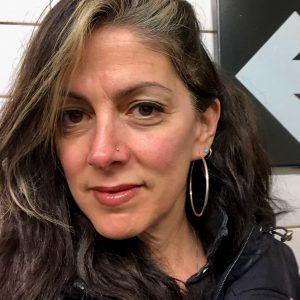 Naomi Less is an internationally celebrated singer/songwriter, ritualist and educator. Beloved for her warm smile and inviting presence, communities celebrate her imagination and innovation, tenderness and pizzazz! Her original music is sung in worship communities worldwide. Naomi serves as Co-Founder, Ritual Leader and Associate Director of Lab/Shul and is a leader in amplifying women’s voices through her work at Songleader Boot Camp and her Jewish Women Rock show on Jewish Rock Radio. Naomiadvocates for people struggling with fertility journeys as a performance artist and speaker for Uprooted: A Jewish Response to Fertility Challenges. Fun fact: Naomi and her husband wrote the song shine/Yivarech’cha, a Friday night blessing, specifically composed for URJ Crane Lake Camp, sung every Friday night in the dining hall.
Naomi Less is an internationally celebrated singer/songwriter, ritualist and educator. Beloved for her warm smile and inviting presence, communities celebrate her imagination and innovation, tenderness and pizzazz! Her original music is sung in worship communities worldwide. Naomi serves as Co-Founder, Ritual Leader and Associate Director of Lab/Shul and is a leader in amplifying women’s voices through her work at Songleader Boot Camp and her Jewish Women Rock show on Jewish Rock Radio. Naomiadvocates for people struggling with fertility journeys as a performance artist and speaker for Uprooted: A Jewish Response to Fertility Challenges. Fun fact: Naomi and her husband wrote the song shine/Yivarech’cha, a Friday night blessing, specifically composed for URJ Crane Lake Camp, sung every Friday night in the dining hall.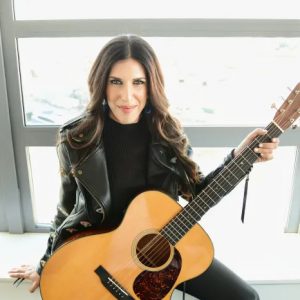 Her destiny became obvious to Joanie Leeds’ parents when, at the tender age of 2, Joanie grabbed the performer’s mic at a party and belted out the entire song“Tomorrow” from Annie. Jaws dropped! No one could remember ever hearing a big voice like that coming from one so tiny and certainly no one would have thought she would one day earn a GRAMMY® Award for her original music.
Her destiny became obvious to Joanie Leeds’ parents when, at the tender age of 2, Joanie grabbed the performer’s mic at a party and belted out the entire song“Tomorrow” from Annie. Jaws dropped! No one could remember ever hearing a big voice like that coming from one so tiny and certainly no one would have thought she would one day earn a GRAMMY® Award for her original music.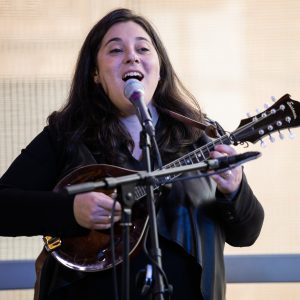 A composer, multi-instrumentalist, and prayer leader, Elana Arian is one of the leading voices in contemporary Jewish music. Elana’s music is part of Jewish life across the globe, and her compositions are sung in spiritual communities, summer camps, and synagogues from Louisville to London, from Chicago to the CzechRepublic, and everywhere in between. Elana just released her fourth album of original music, The Other Side of Fear, and her compositions have been published in countless Transcontinental Music collections. Elana serves proudly on the faculty of Hava Nashira (Oconomowoc, WI), the Wexner Heritage Foundation (Aspen, CO), Shirei Chagiga (London, England), and as an instructor at the Hebrew Union College in New York, where she teaches in the Debbie Friedman School of Sacred Music. Elana has performed at Carnegie Hall, Lincoln Center, Tanglewood, and perhaps most memorably, five separate appearances at the (Obama) White House. She lives in New York with her wife, Julia, and their two daughters, Maya and Acadia.
A composer, multi-instrumentalist, and prayer leader, Elana Arian is one of the leading voices in contemporary Jewish music. Elana’s music is part of Jewish life across the globe, and her compositions are sung in spiritual communities, summer camps, and synagogues from Louisville to London, from Chicago to the CzechRepublic, and everywhere in between. Elana just released her fourth album of original music, The Other Side of Fear, and her compositions have been published in countless Transcontinental Music collections. Elana serves proudly on the faculty of Hava Nashira (Oconomowoc, WI), the Wexner Heritage Foundation (Aspen, CO), Shirei Chagiga (London, England), and as an instructor at the Hebrew Union College in New York, where she teaches in the Debbie Friedman School of Sacred Music. Elana has performed at Carnegie Hall, Lincoln Center, Tanglewood, and perhaps most memorably, five separate appearances at the (Obama) White House. She lives in New York with her wife, Julia, and their two daughters, Maya and Acadia.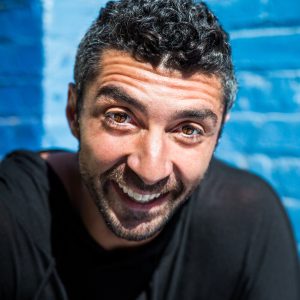 Known for his unique, engaging, and deeply soulful approach, Noah Aronson is considered one of the most sought after Jewish musicians in North America, making over 65 community appearances each year.
Known for his unique, engaging, and deeply soulful approach, Noah Aronson is considered one of the most sought after Jewish musicians in North America, making over 65 community appearances each year. There is a reason why Time Magazine has listed Michelle in their Top Ten list of Jewish rock stars.
There is a reason why Time Magazine has listed Michelle in their Top Ten list of Jewish rock stars.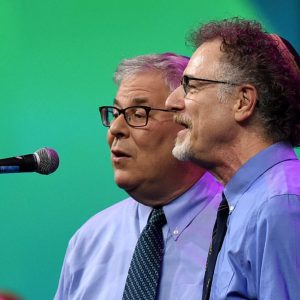 Kol B’Seder has been composing and performing contemporary Jewish music since the early1970s. Rabbi Dan Freelander and Cantor Jeff Klepper met as college students; over the past 50years they have released numerous CDs and songbooks. With Debbie Friedman (z”l) and others, they forged a new musical sound for American Jewish camps, schools and synagogues. Their songs, such as “Shalom Rav,” “Modeh Ani,” and “Lo Alecha,” have become traditionalJewish melodies around the world. They are delighted to be inaugurating their fiftieth anniversary celebration by appearing in support of URJ camps, where they first composed and incubated many of their early songs.
Kol B’Seder has been composing and performing contemporary Jewish music since the early1970s. Rabbi Dan Freelander and Cantor Jeff Klepper met as college students; over the past 50years they have released numerous CDs and songbooks. With Debbie Friedman (z”l) and others, they forged a new musical sound for American Jewish camps, schools and synagogues. Their songs, such as “Shalom Rav,” “Modeh Ani,” and “Lo Alecha,” have become traditionalJewish melodies around the world. They are delighted to be inaugurating their fiftieth anniversary celebration by appearing in support of URJ camps, where they first composed and incubated many of their early songs.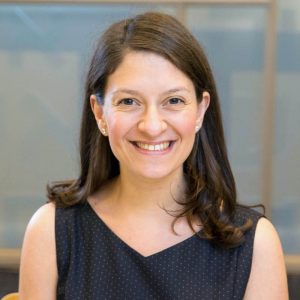
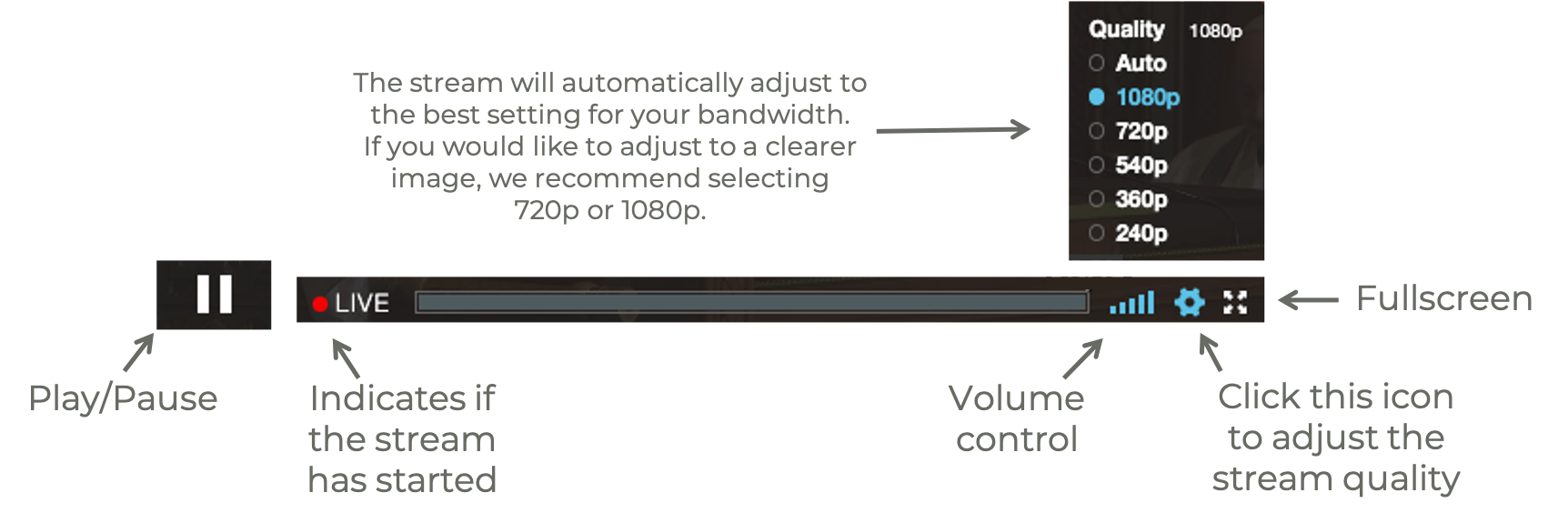
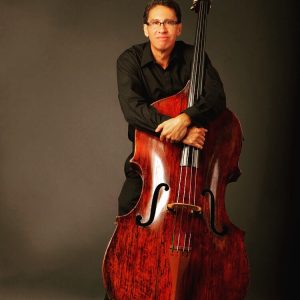 New York bassist Roger Wagner enjoys a long and diverse career. As soloist, chamber musician, and orchestral bassist, Mr. Wagner has appeared on many of the world’s great concert stages.
New York bassist Roger Wagner enjoys a long and diverse career. As soloist, chamber musician, and orchestral bassist, Mr. Wagner has appeared on many of the world’s great concert stages.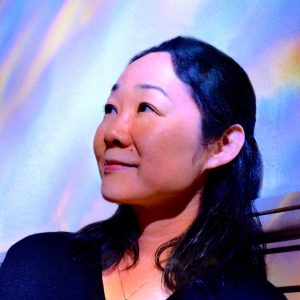
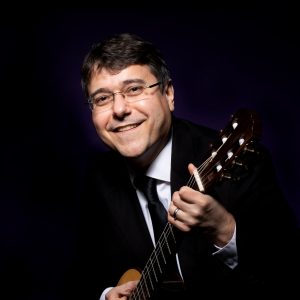
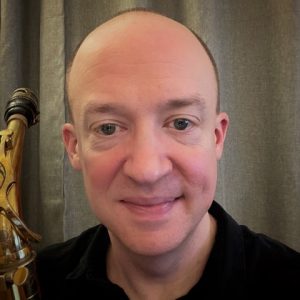
 Margaret Kampmeier,
Margaret Kampmeier, 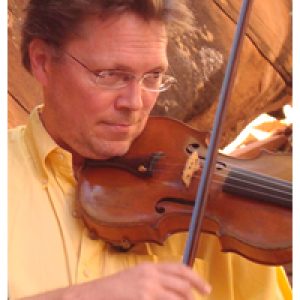 Leonard Bernstein described
Leonard Bernstein described 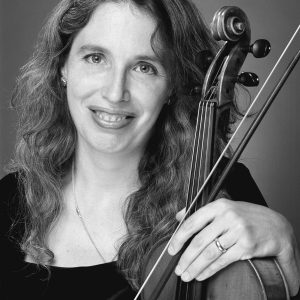 Sarah Adams
Sarah Adams 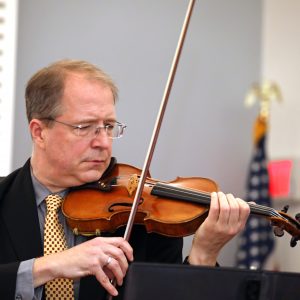 Michael Roth
Michael Roth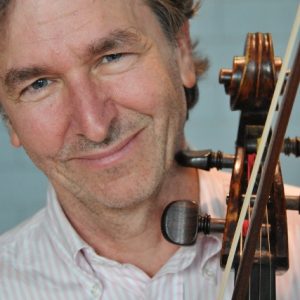
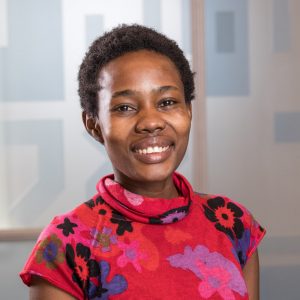

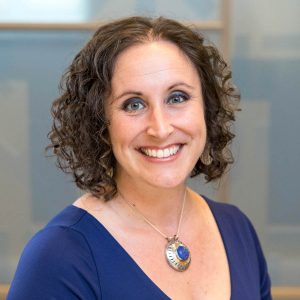

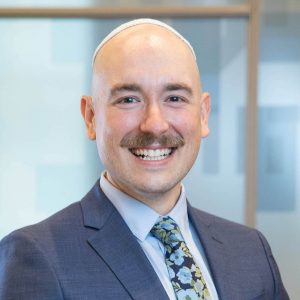
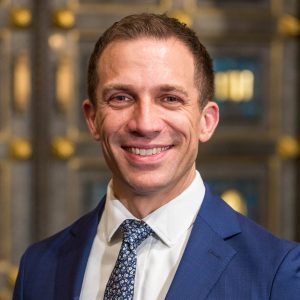
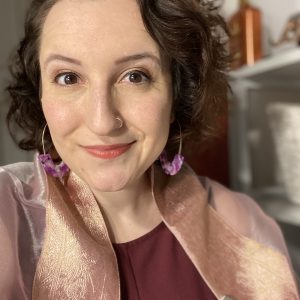
 Our initiative for young children and their grown-ups provides a slate of offerings including Shabbat and holiday celebrations, music, classroom readiness programs, and new parent experiences. During the pandemic, we have leaned on $1m of seed funding for Sholom Sprouts established through this campaign as we offer age-appropriate virtual programs for our families with young children, who are the future of our community. We look forward to welcoming our littlest members and their grown-ups back to our new fifth floor, as well as hiring a Program Assistant to increase the capacity of Sholom Sprouts to grow. This program provides a crucial entry-point to the congregation and membership for young families.
Our initiative for young children and their grown-ups provides a slate of offerings including Shabbat and holiday celebrations, music, classroom readiness programs, and new parent experiences. During the pandemic, we have leaned on $1m of seed funding for Sholom Sprouts established through this campaign as we offer age-appropriate virtual programs for our families with young children, who are the future of our community. We look forward to welcoming our littlest members and their grown-ups back to our new fifth floor, as well as hiring a Program Assistant to increase the capacity of Sholom Sprouts to grow. This program provides a crucial entry-point to the congregation and membership for young families.

